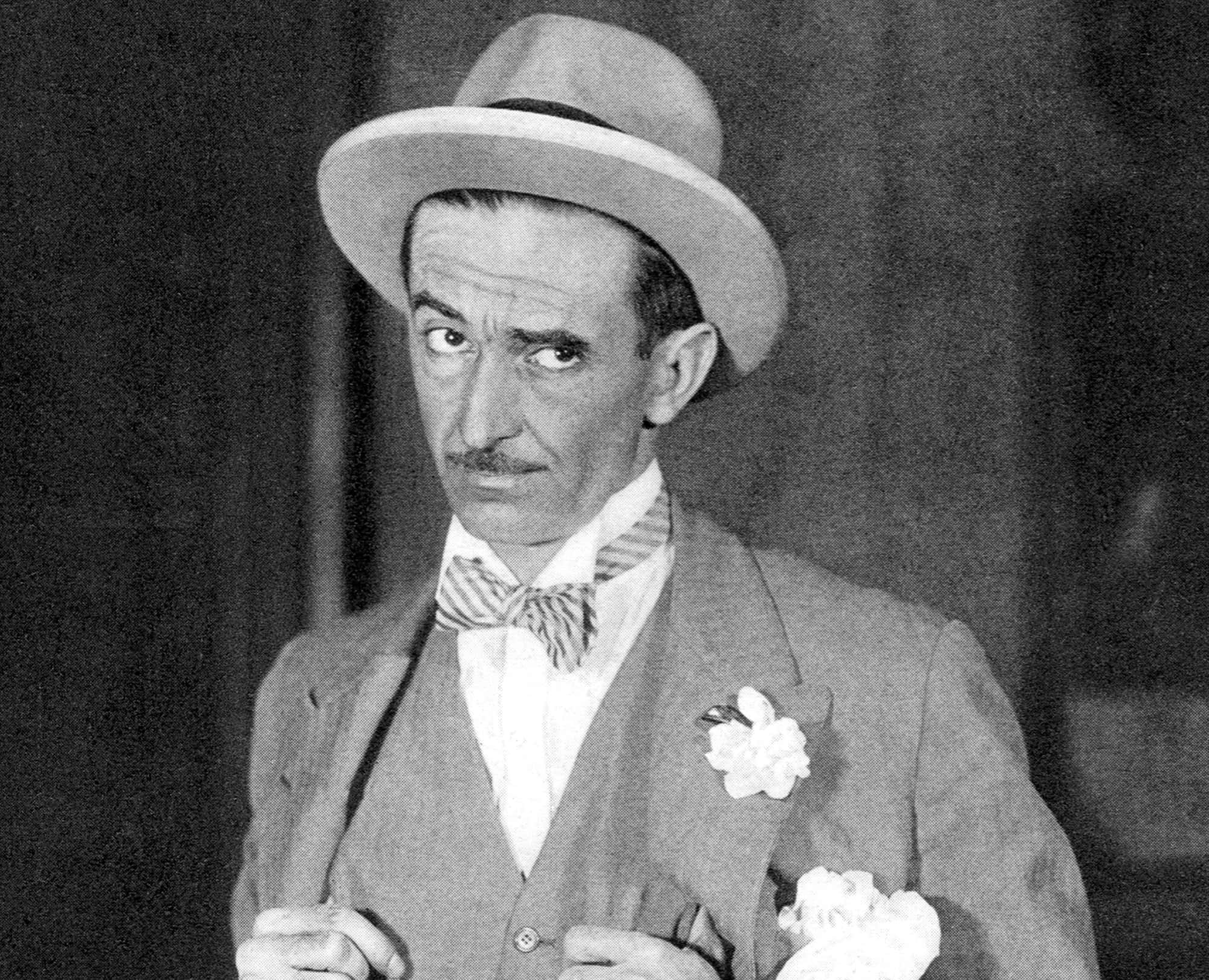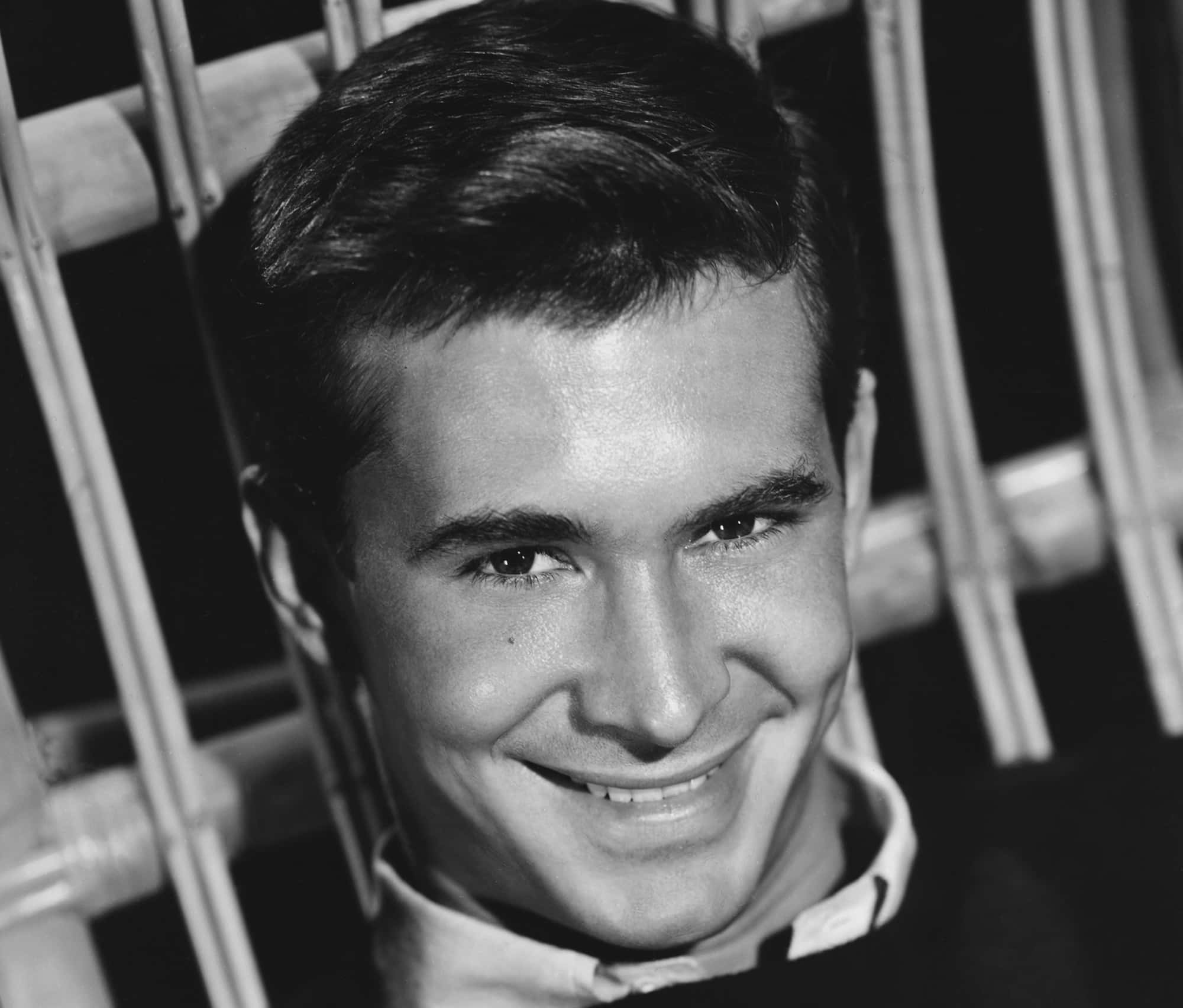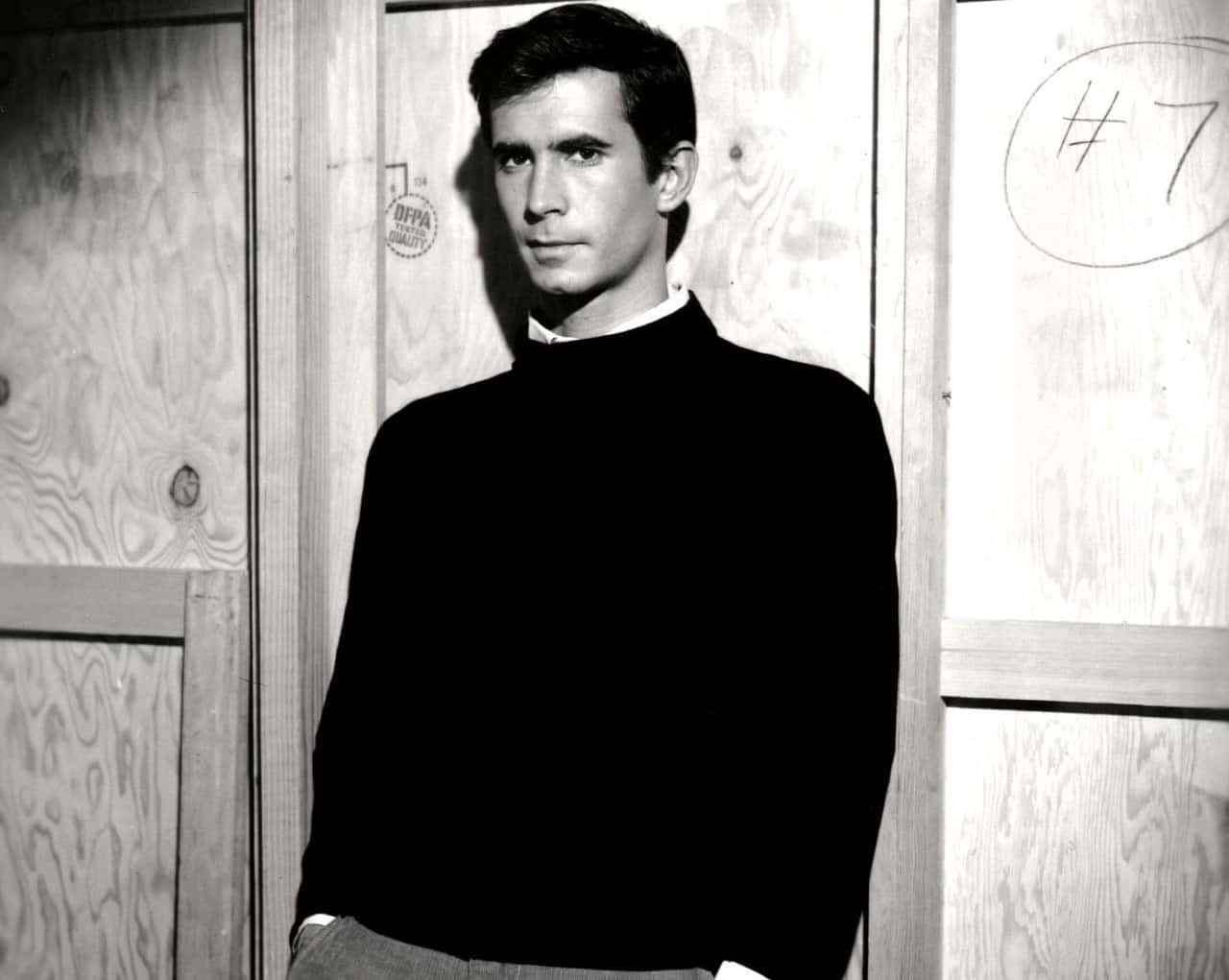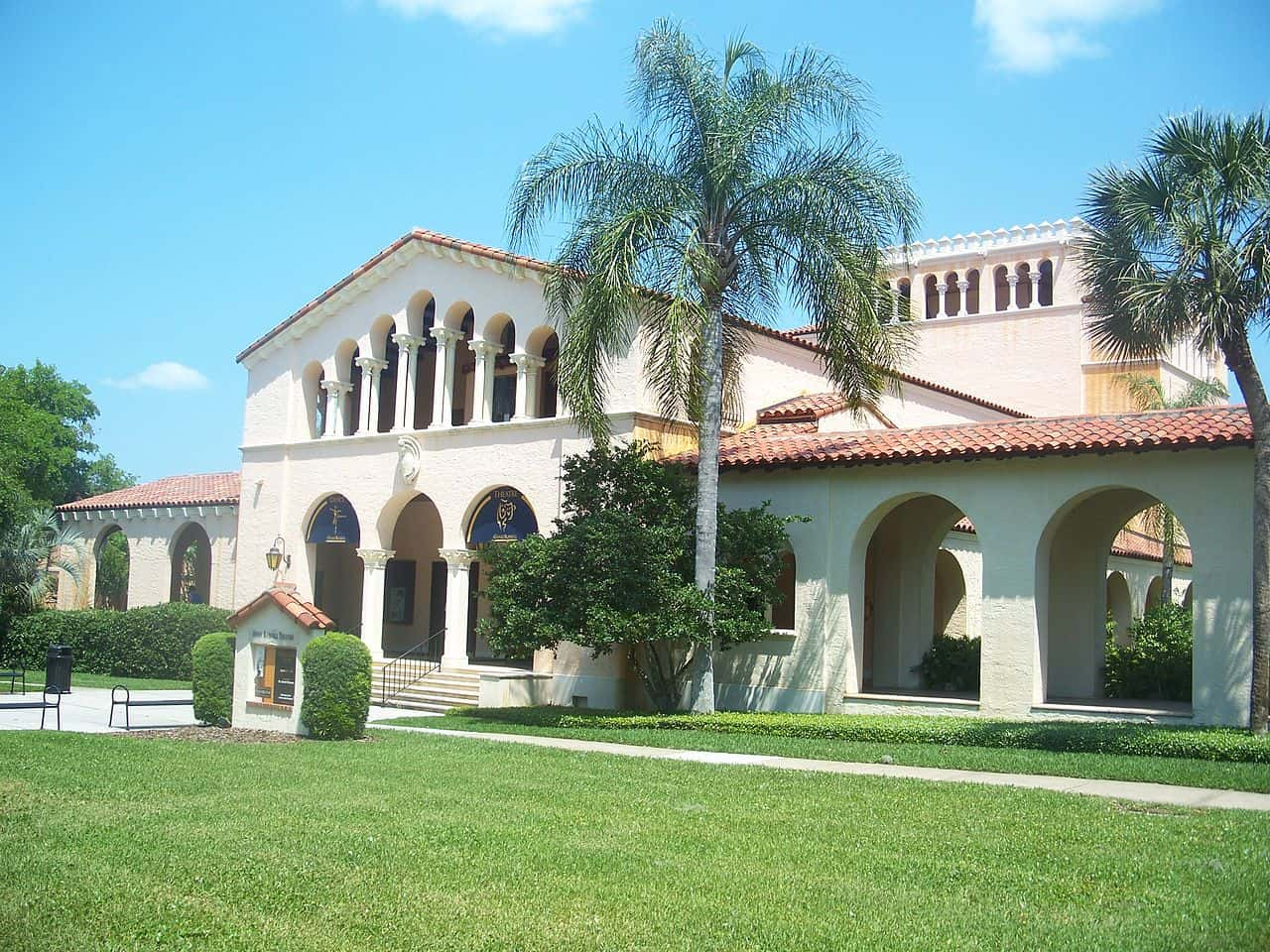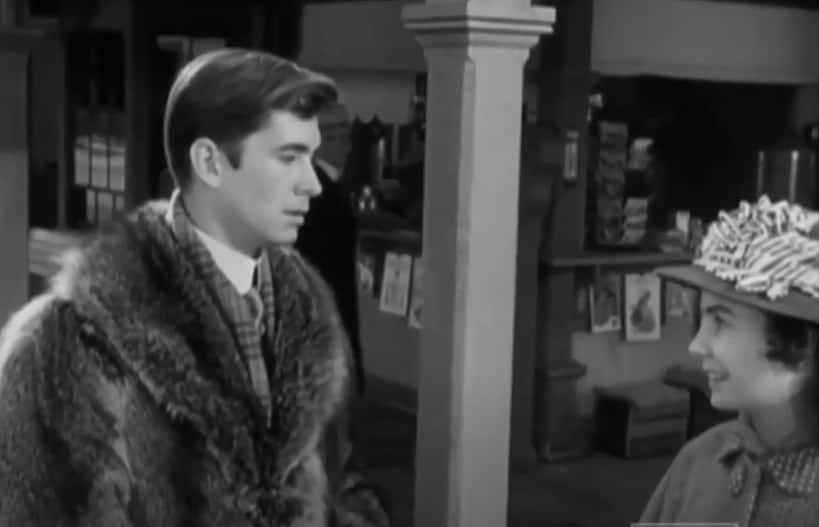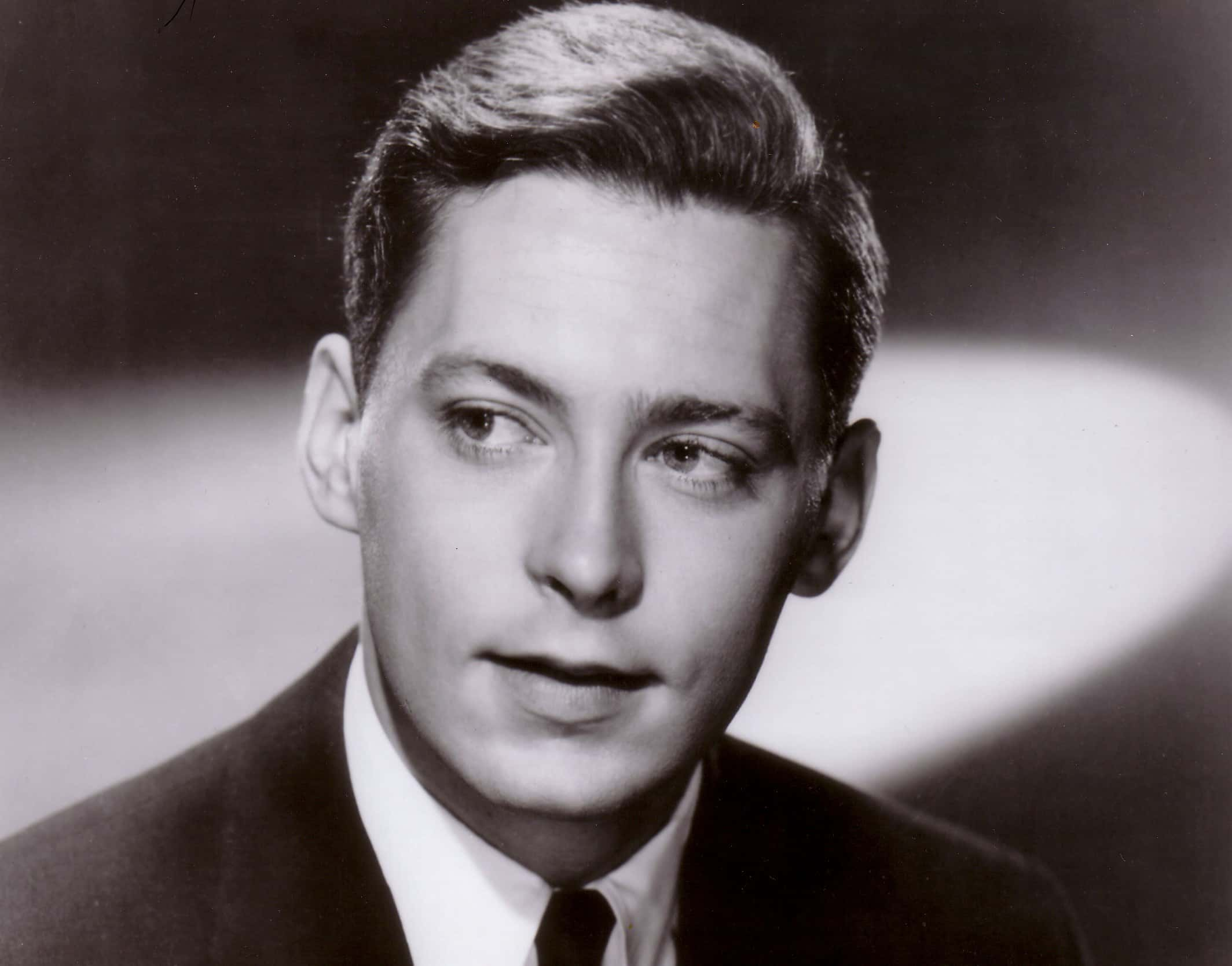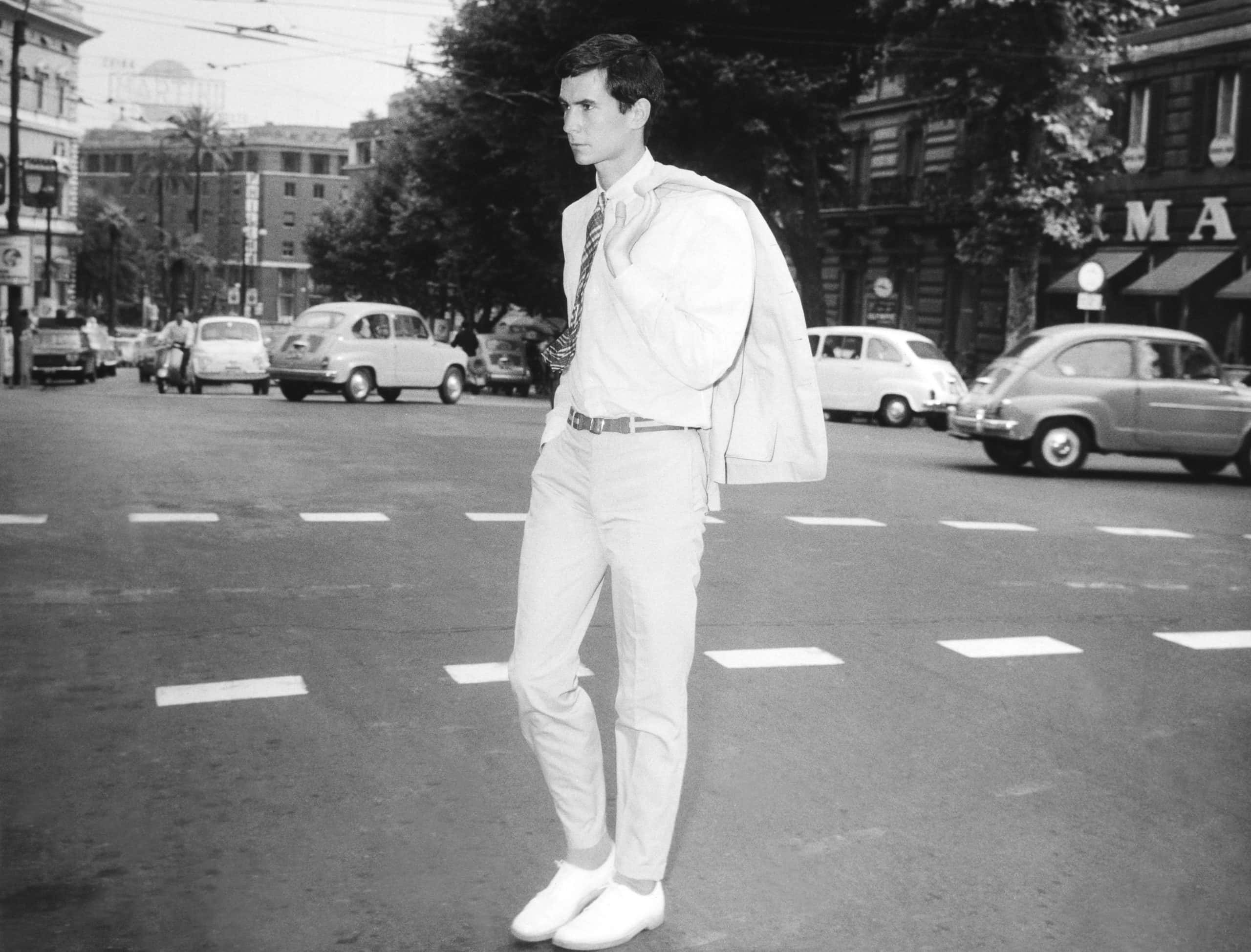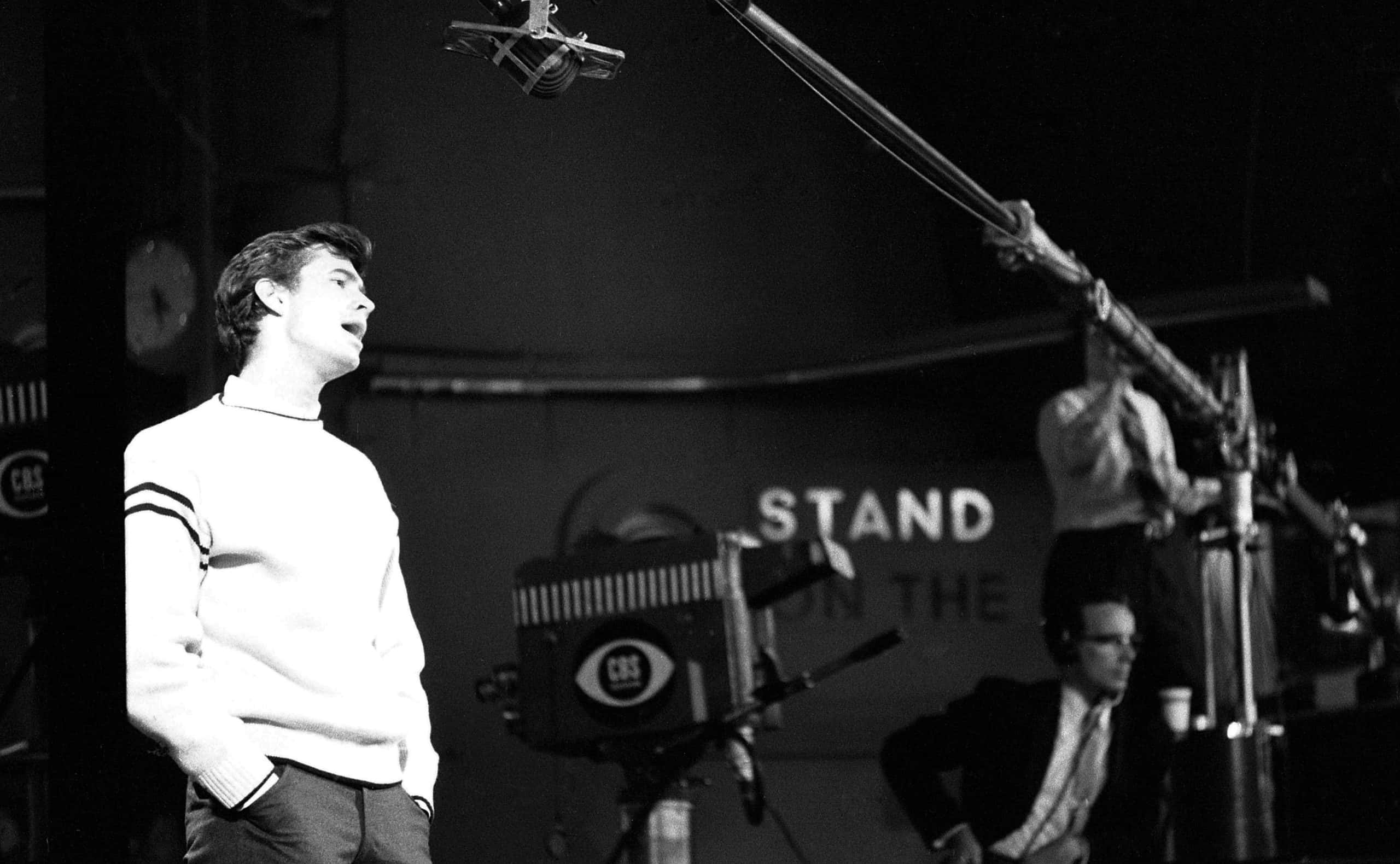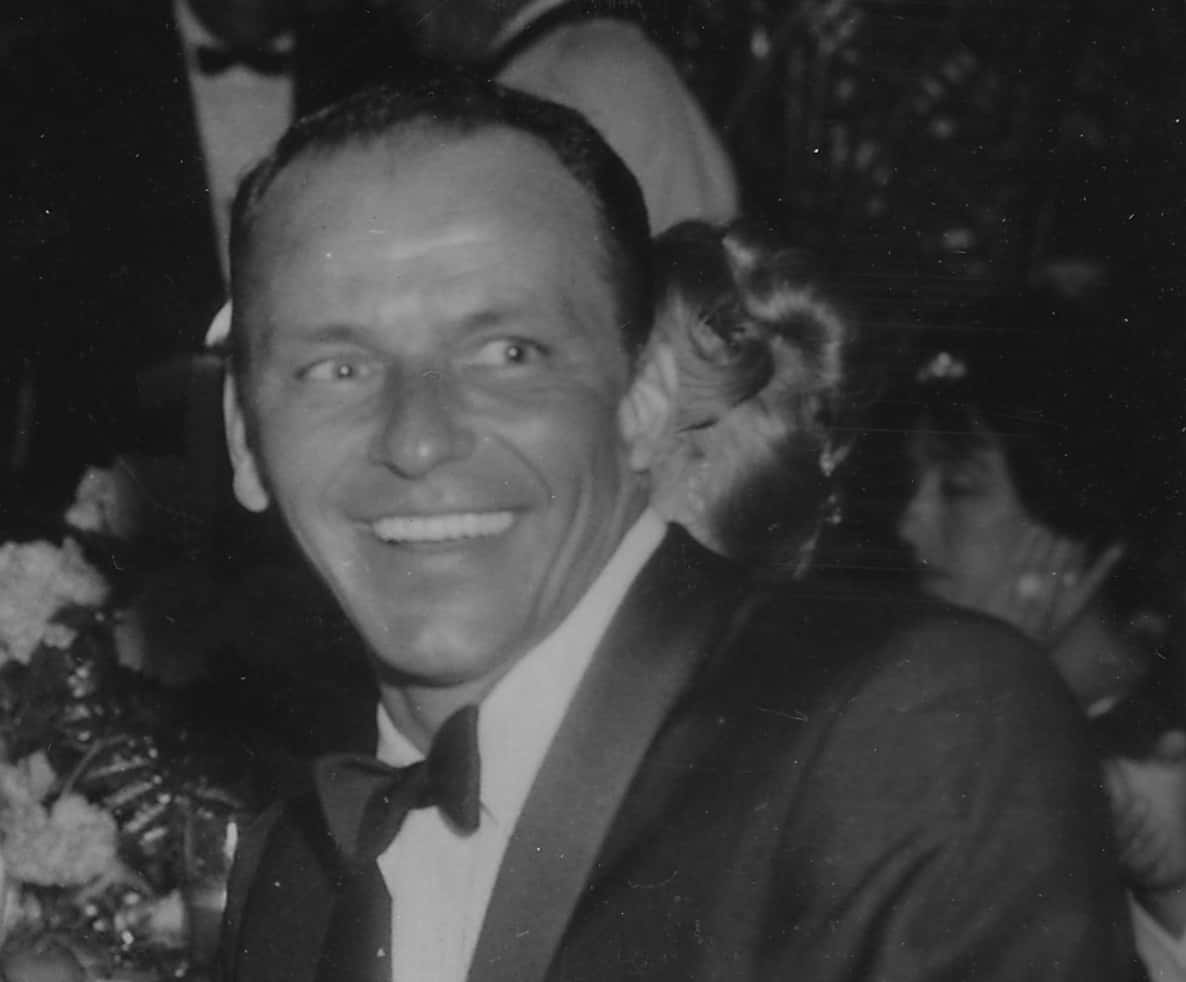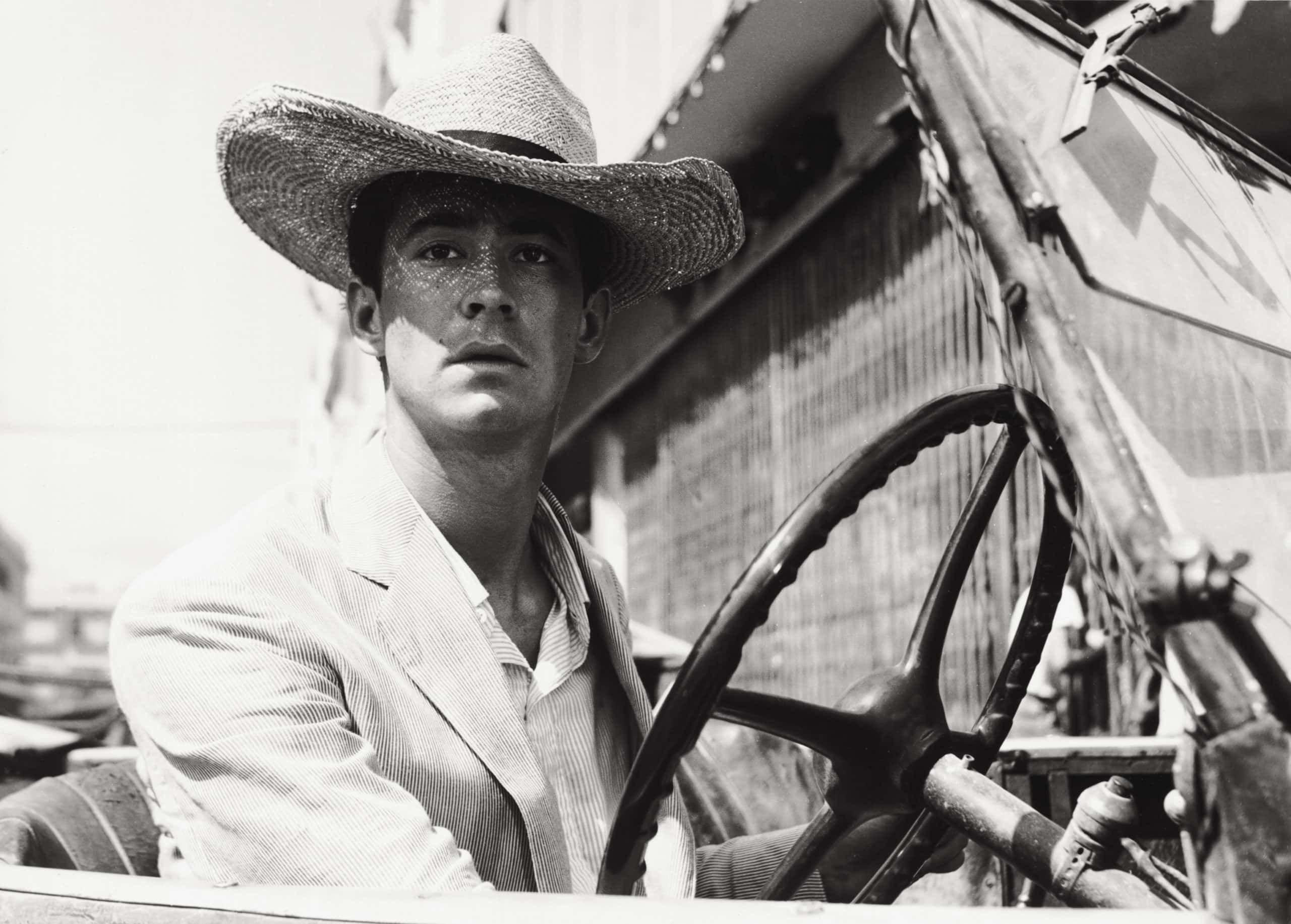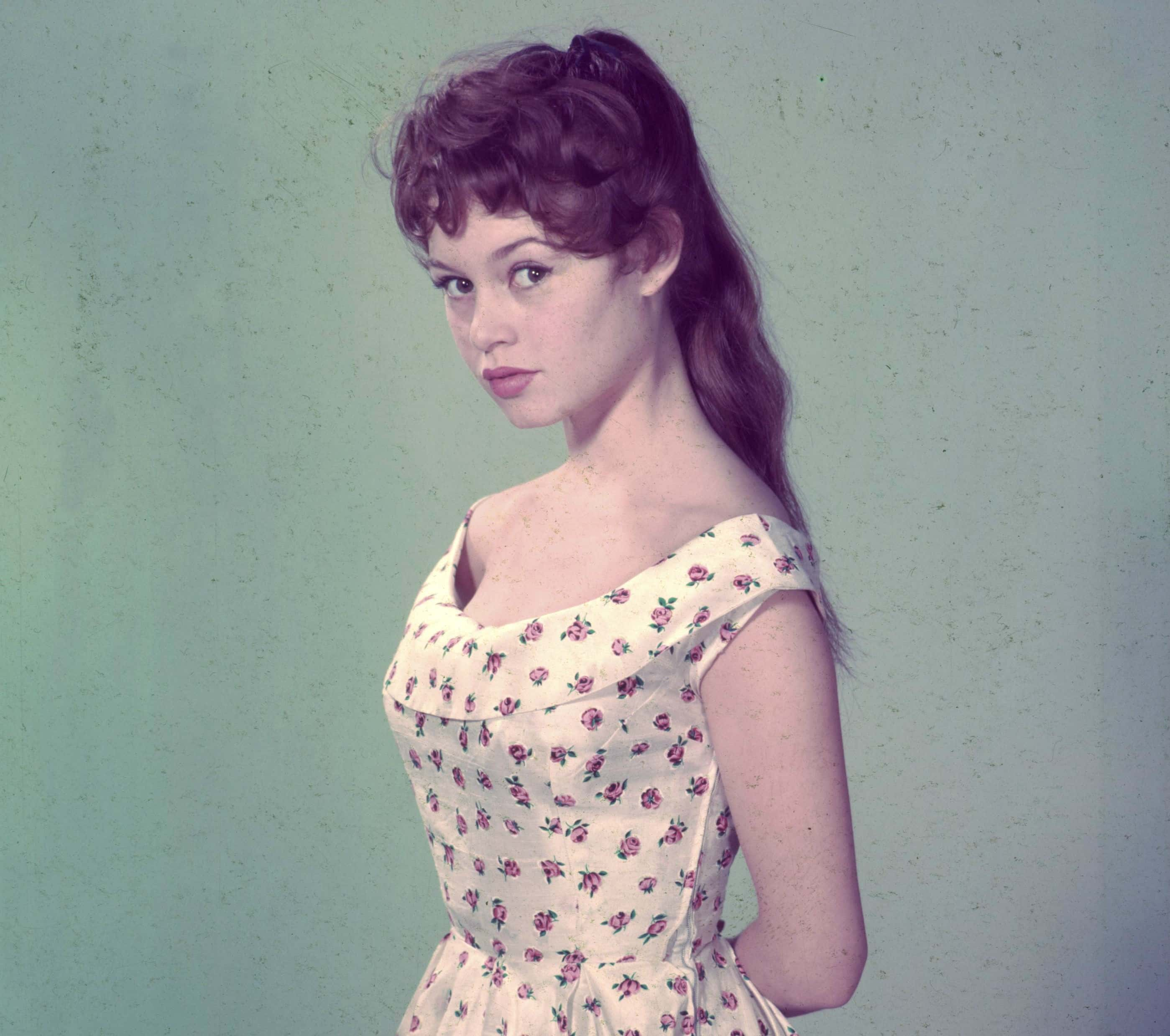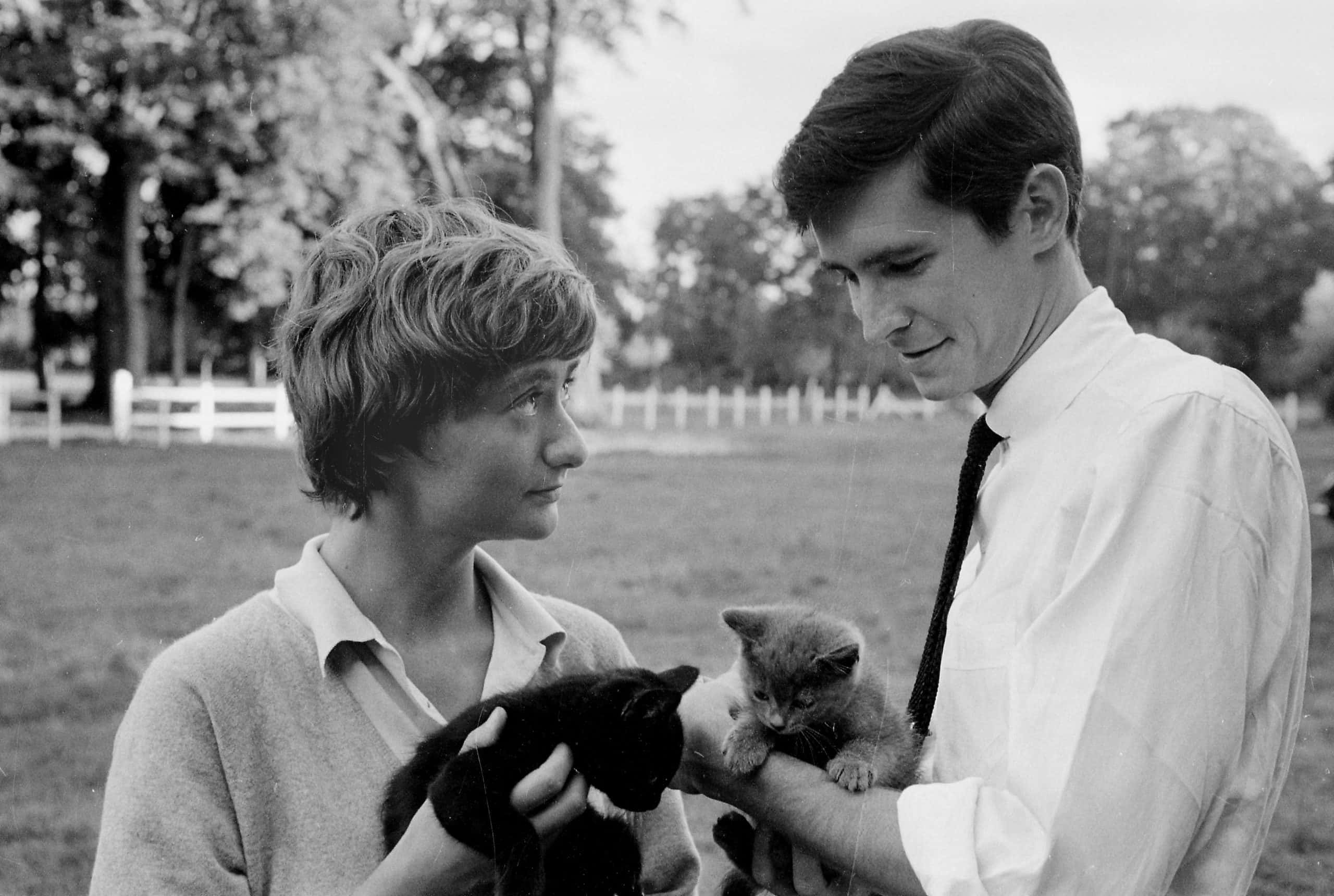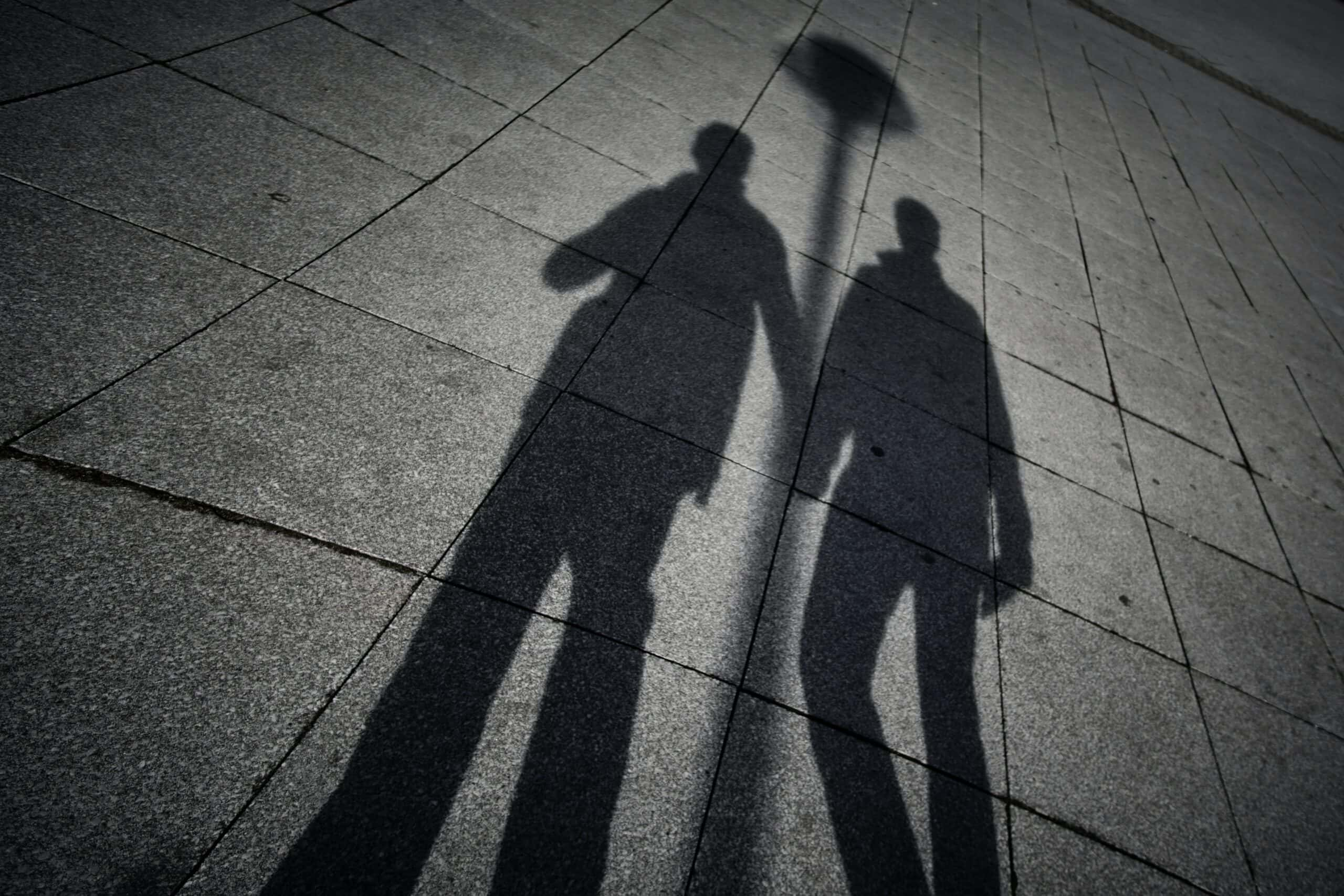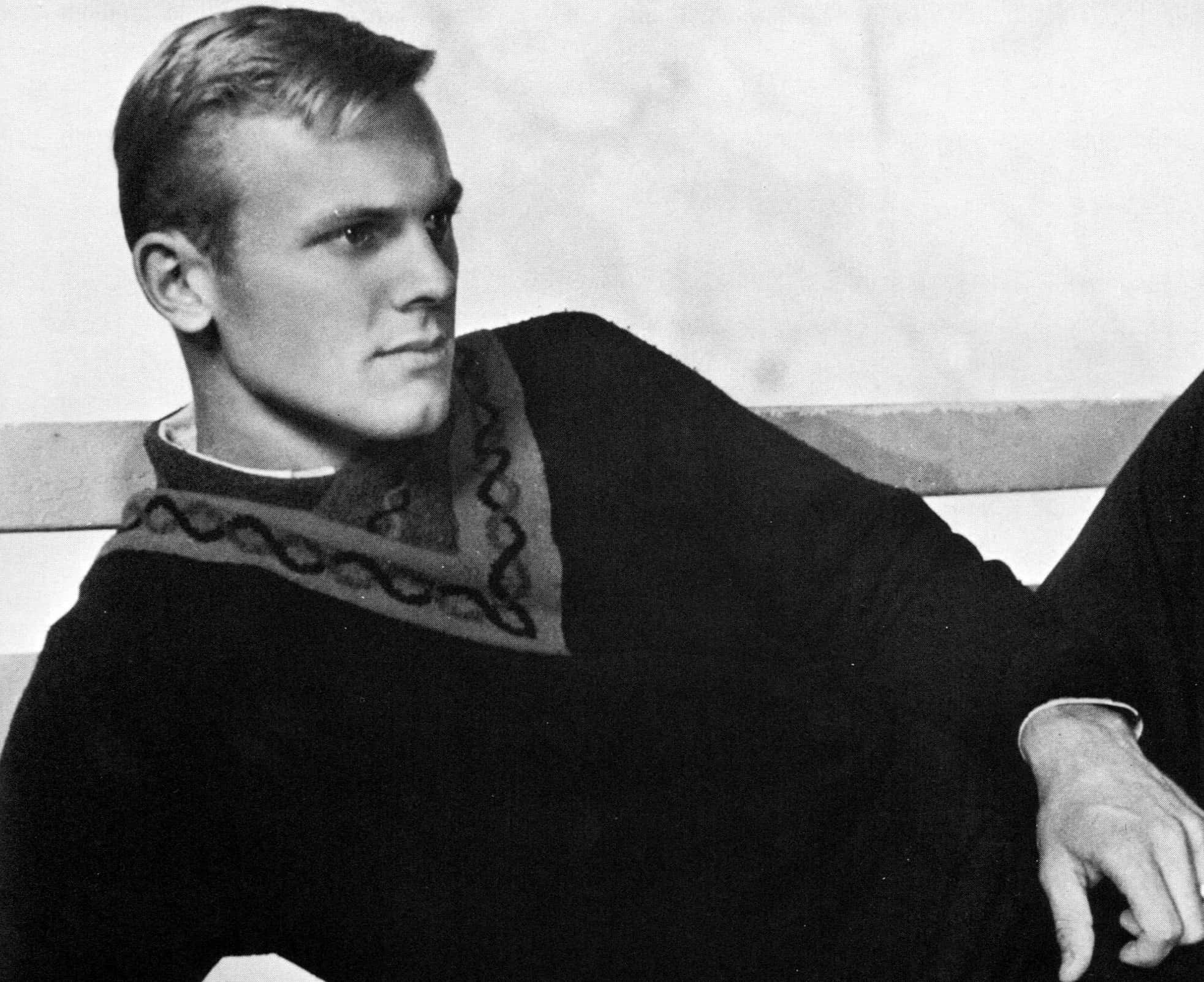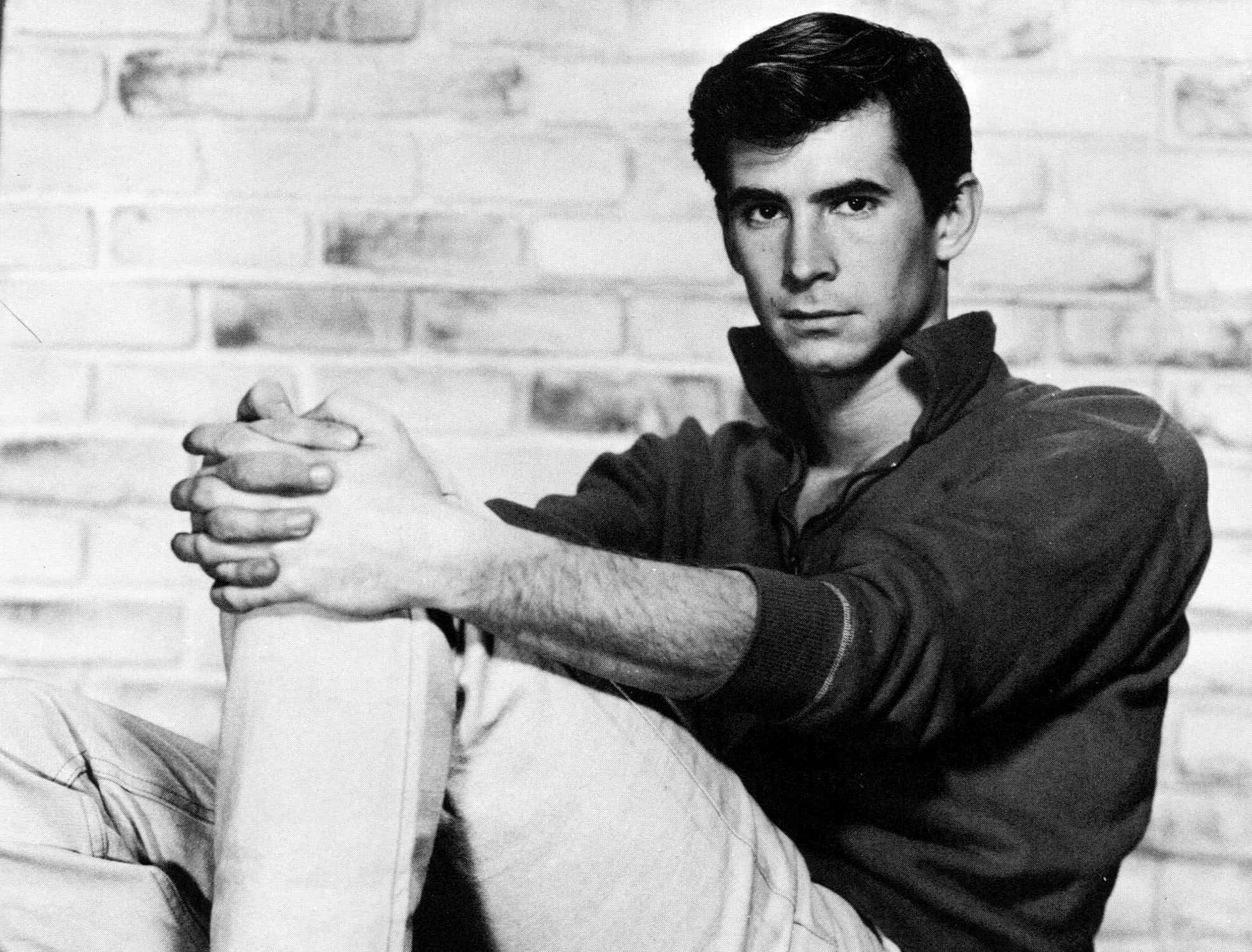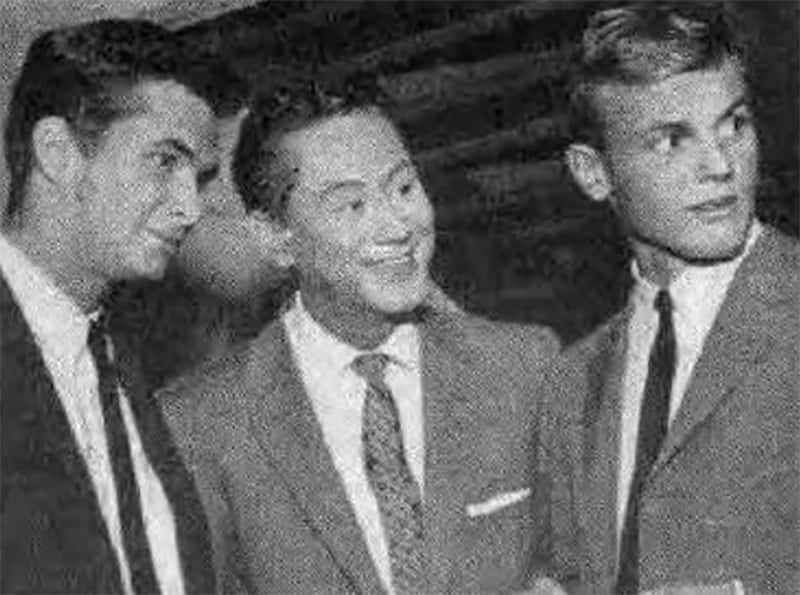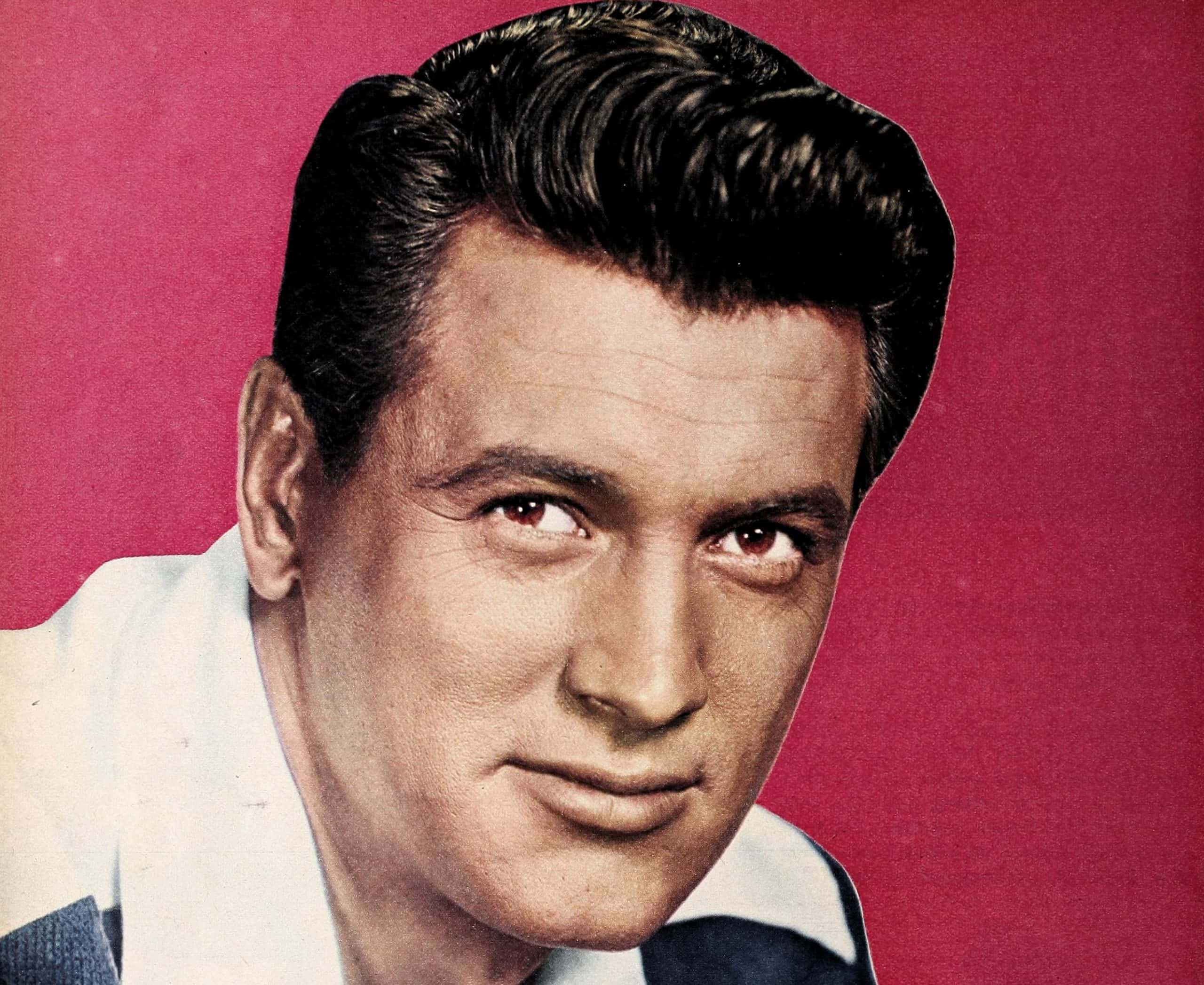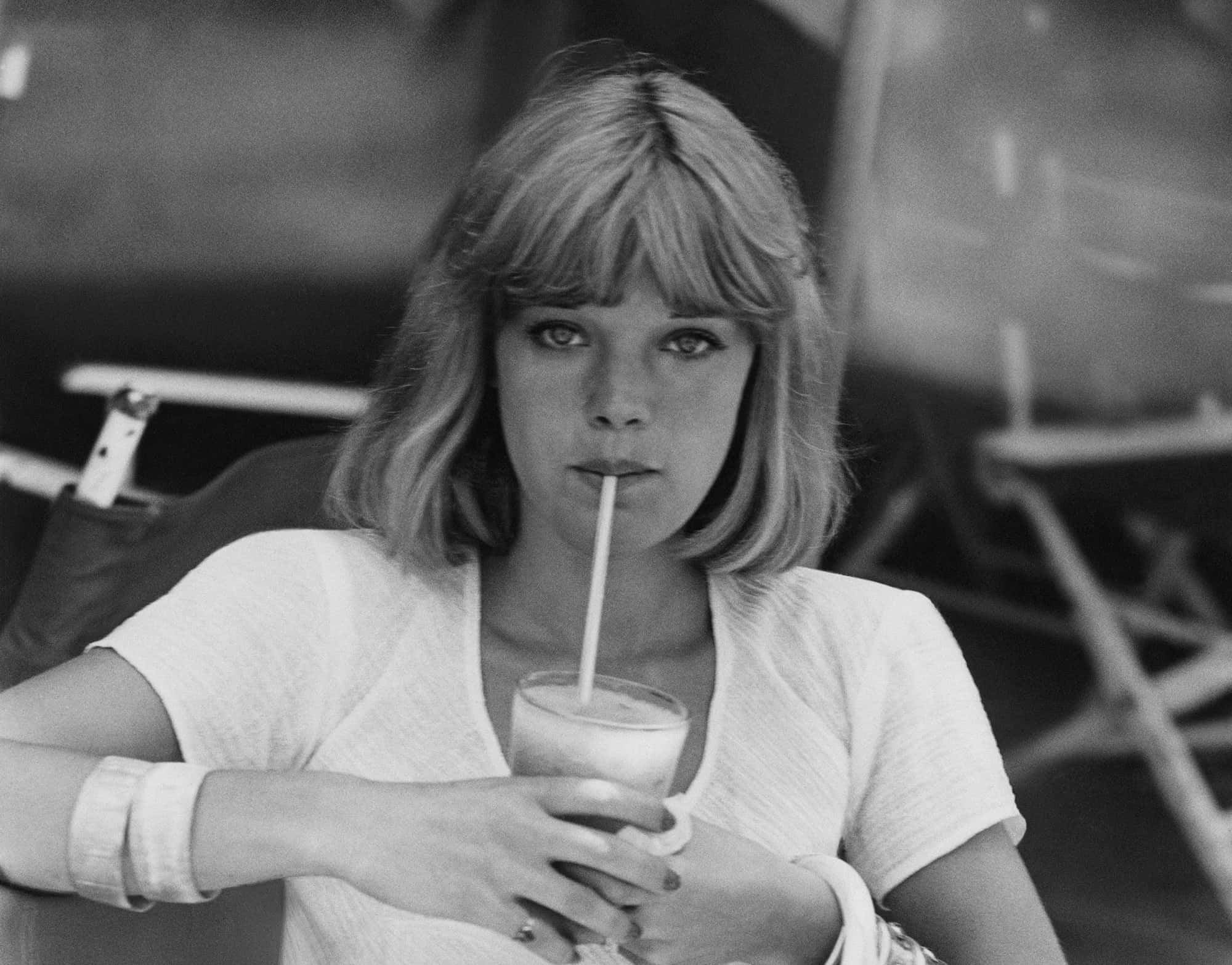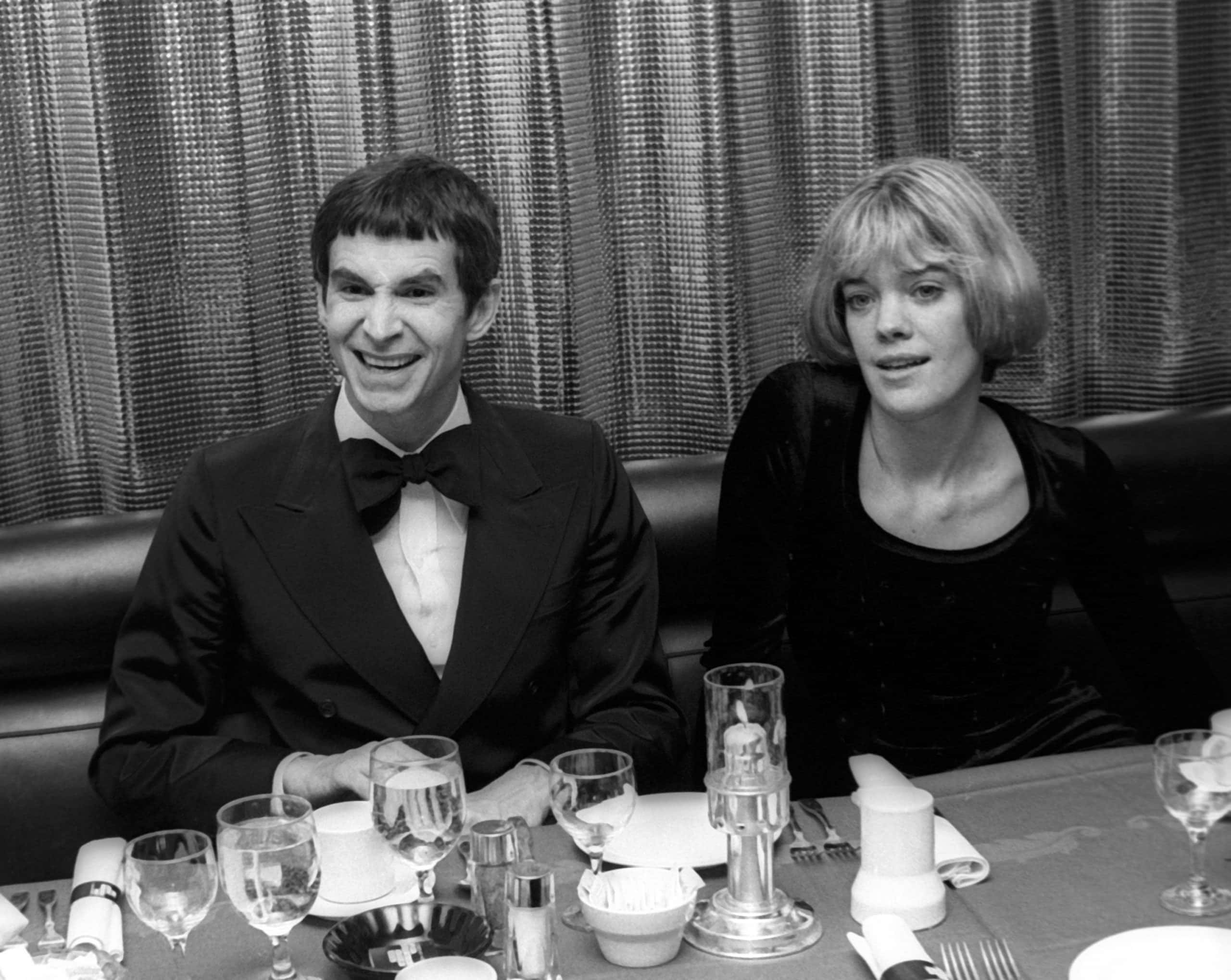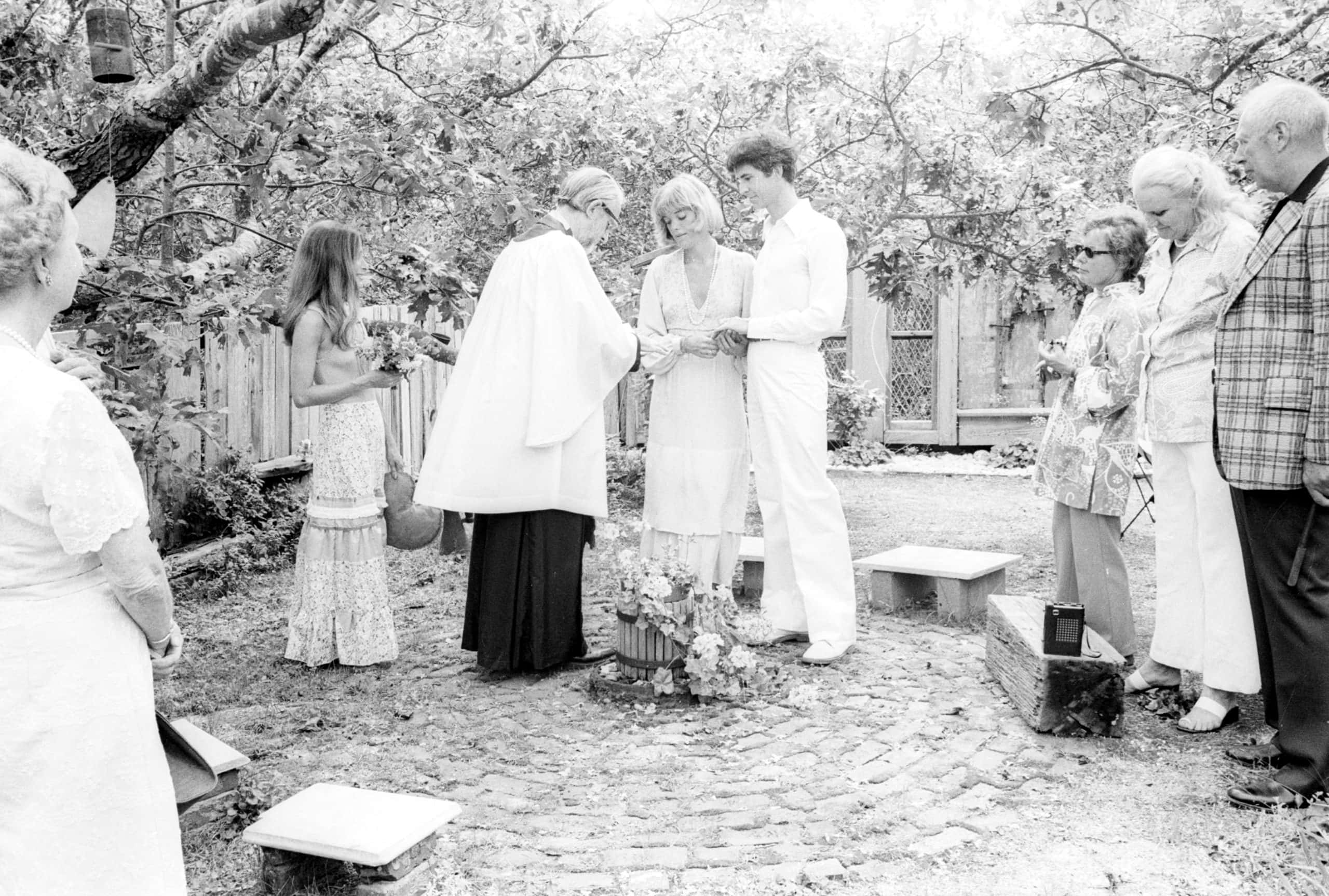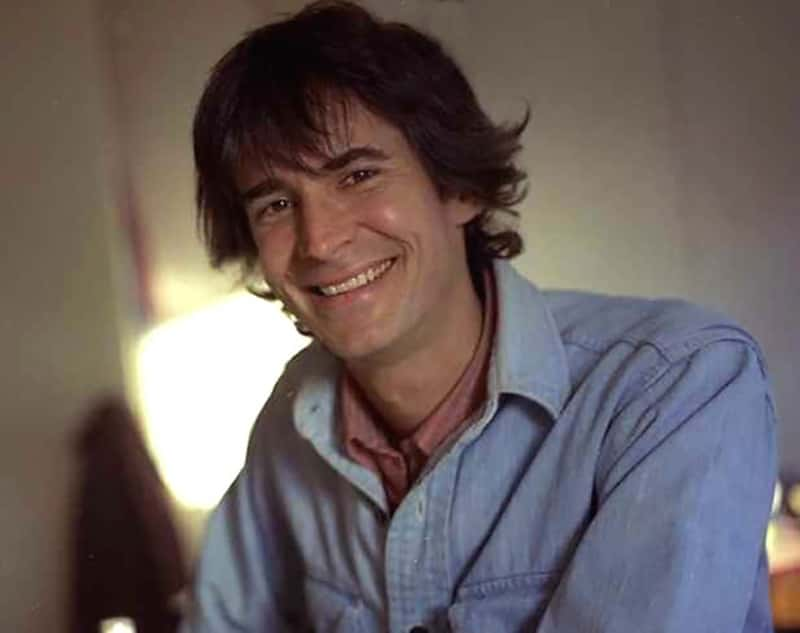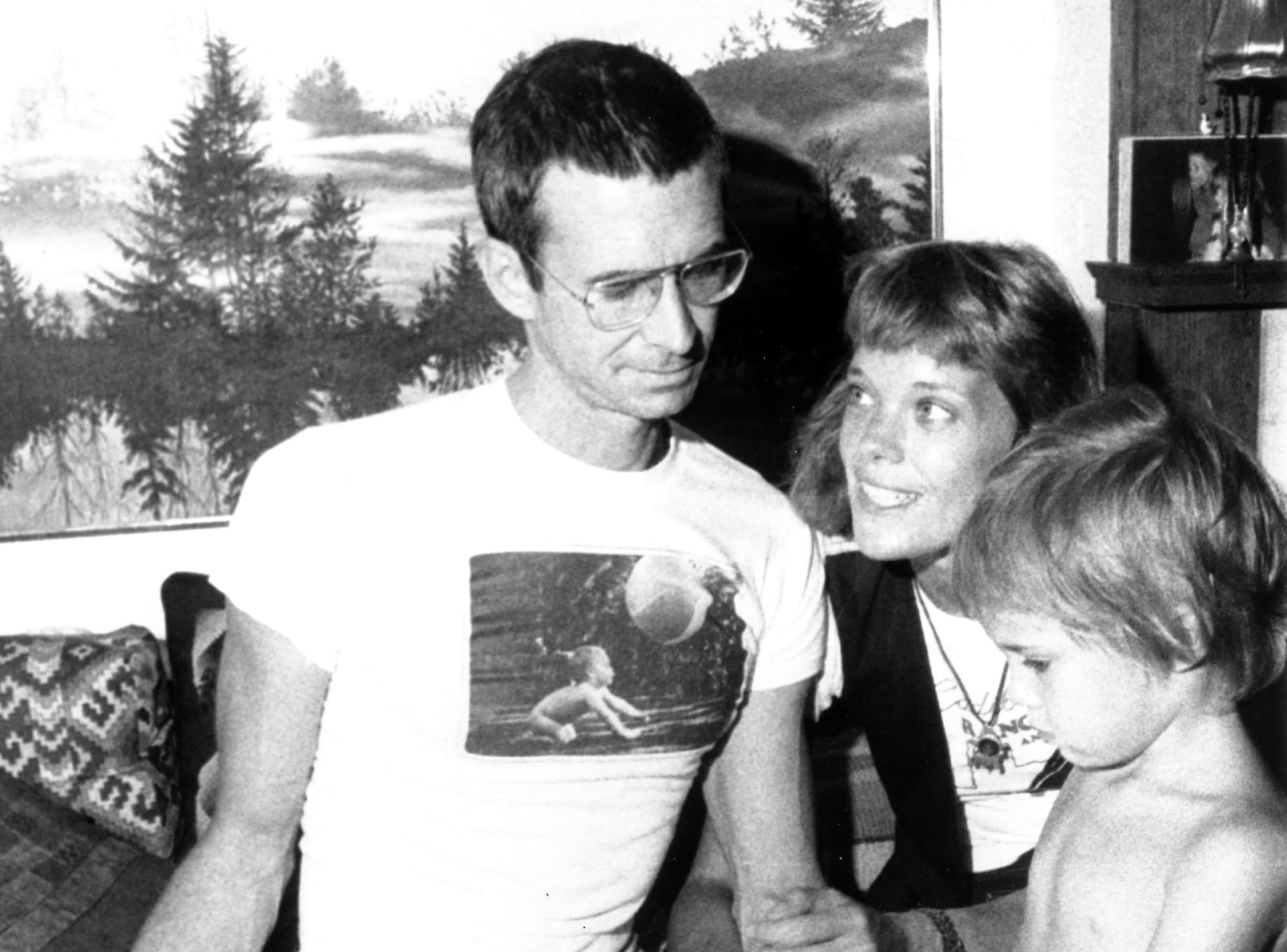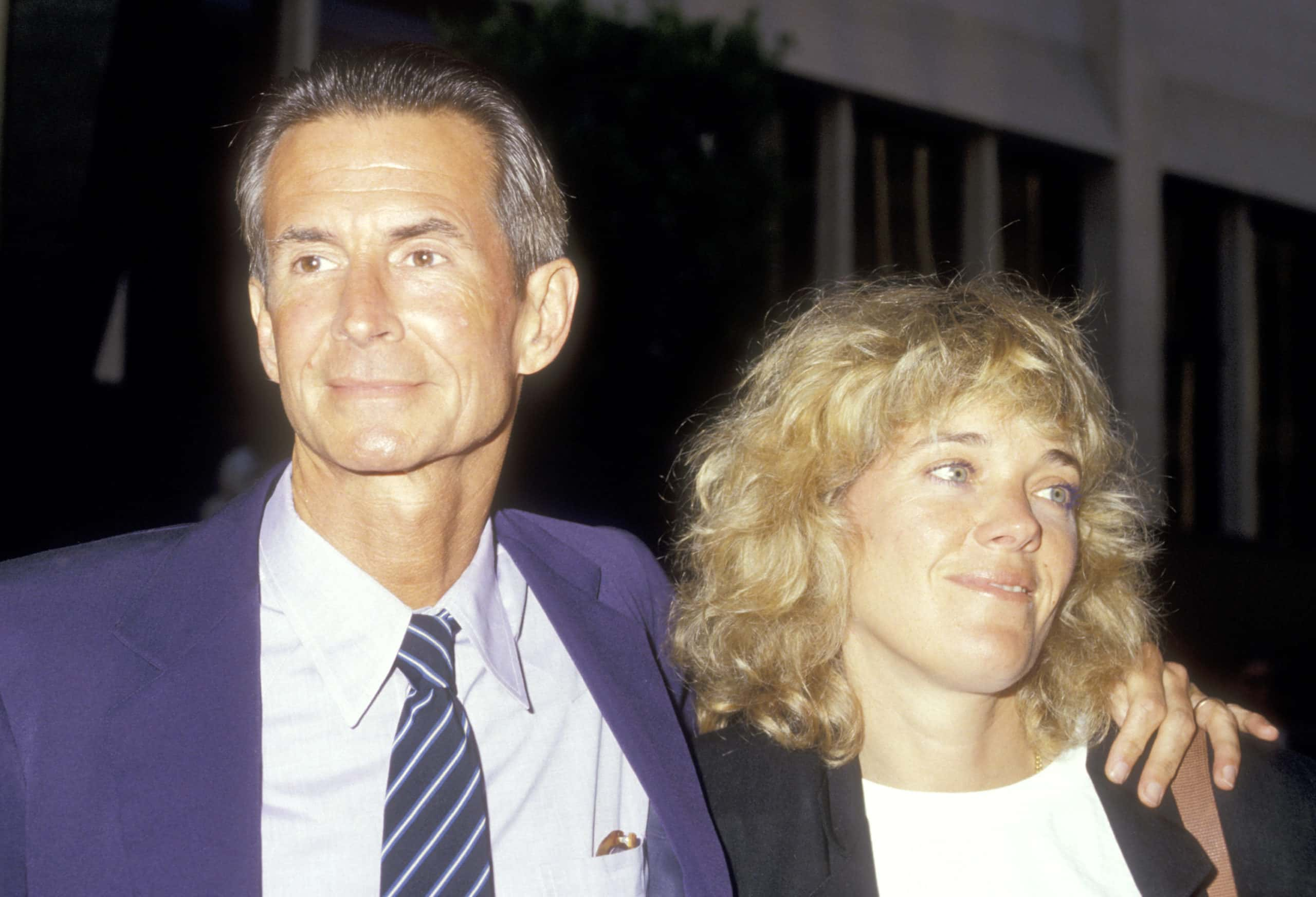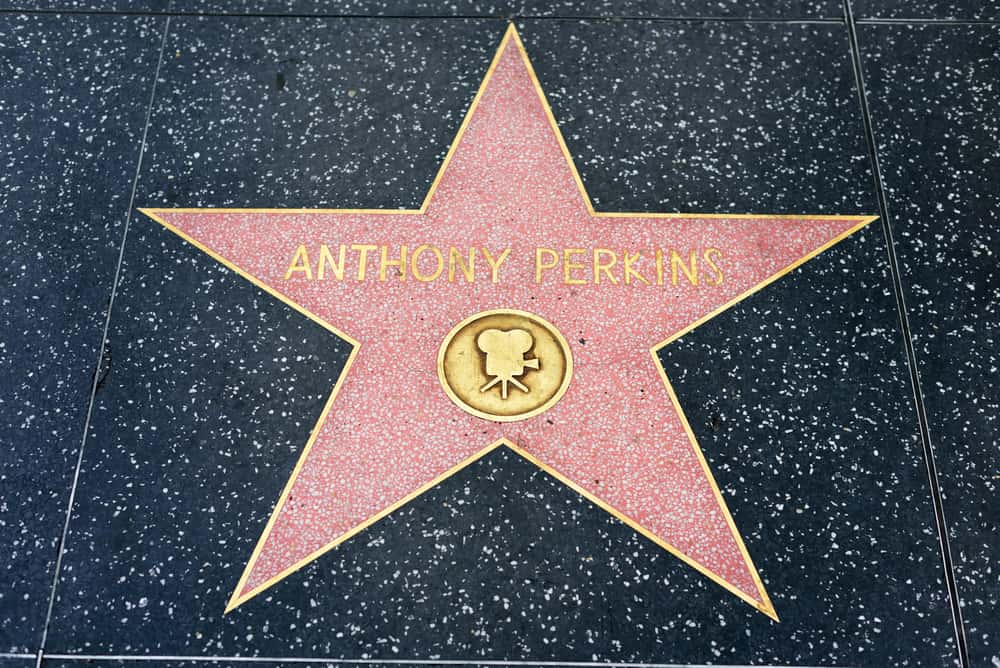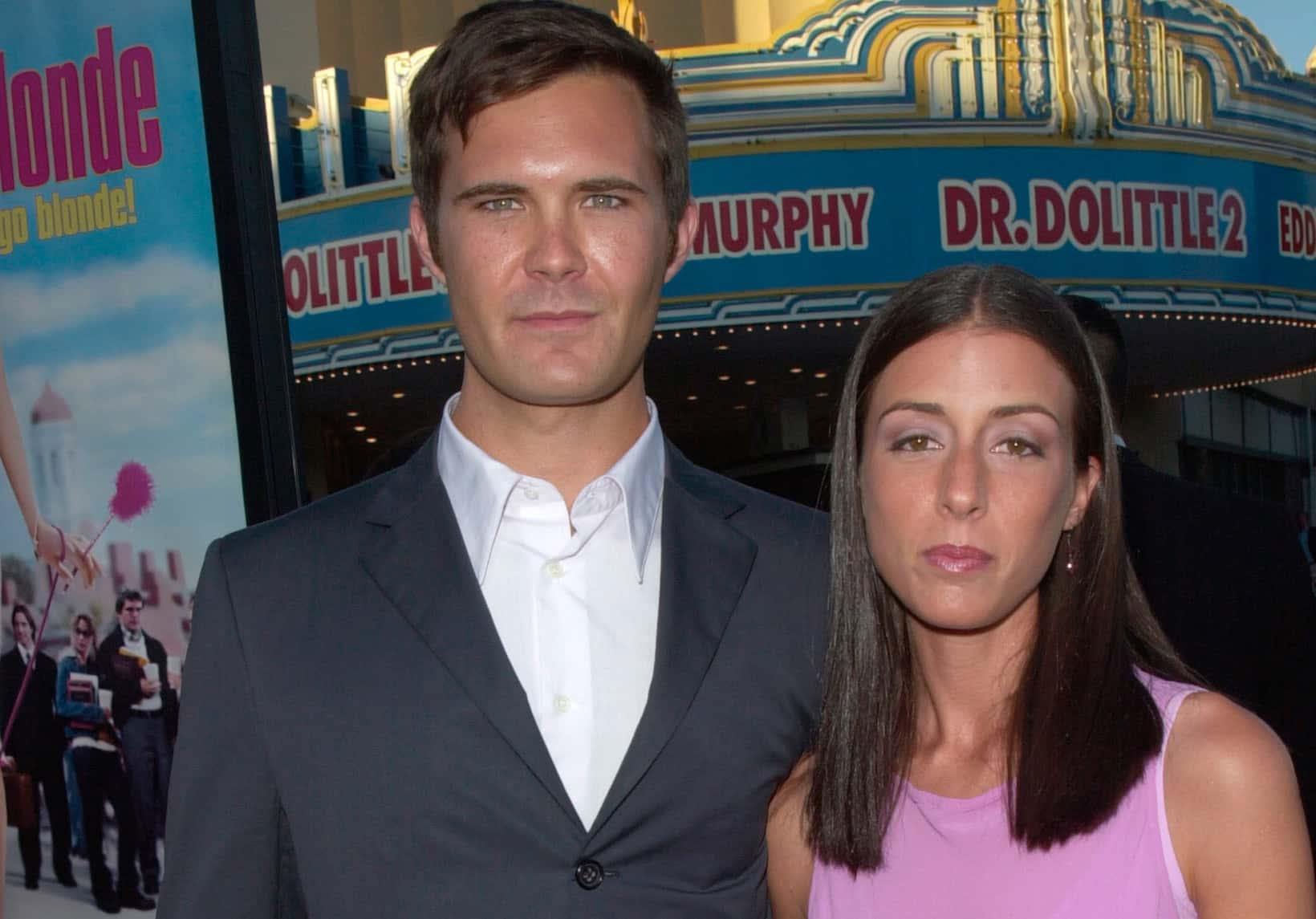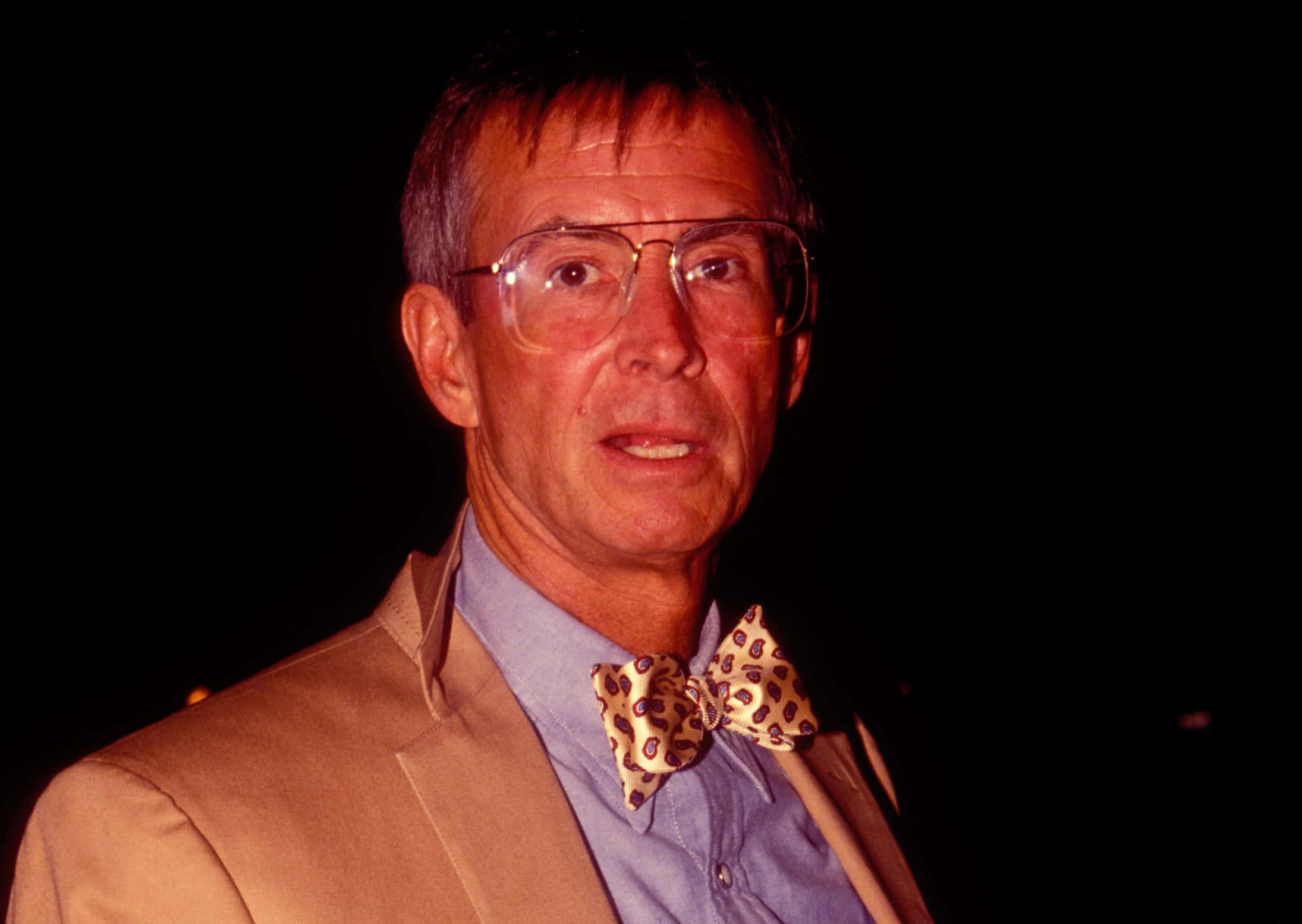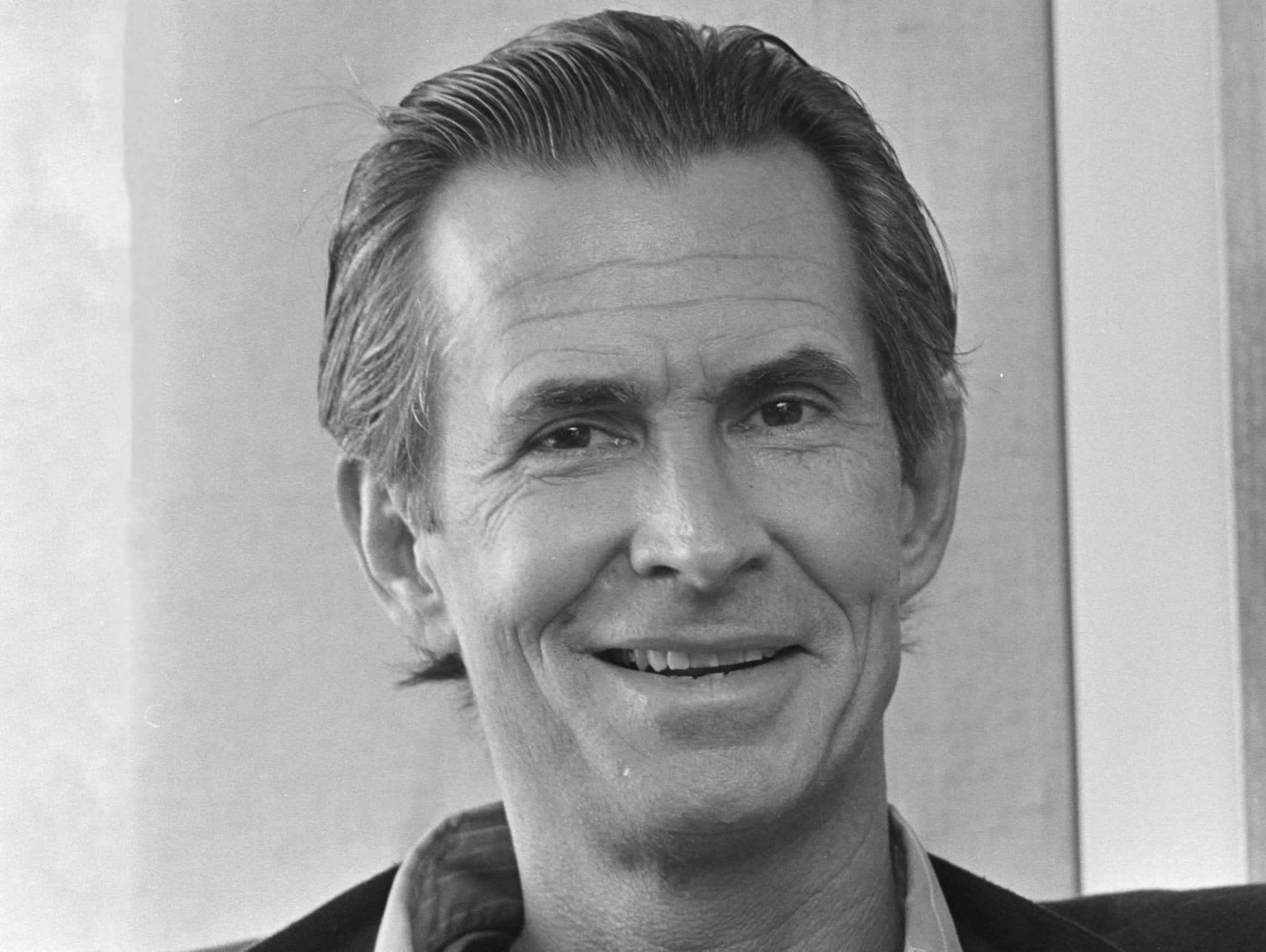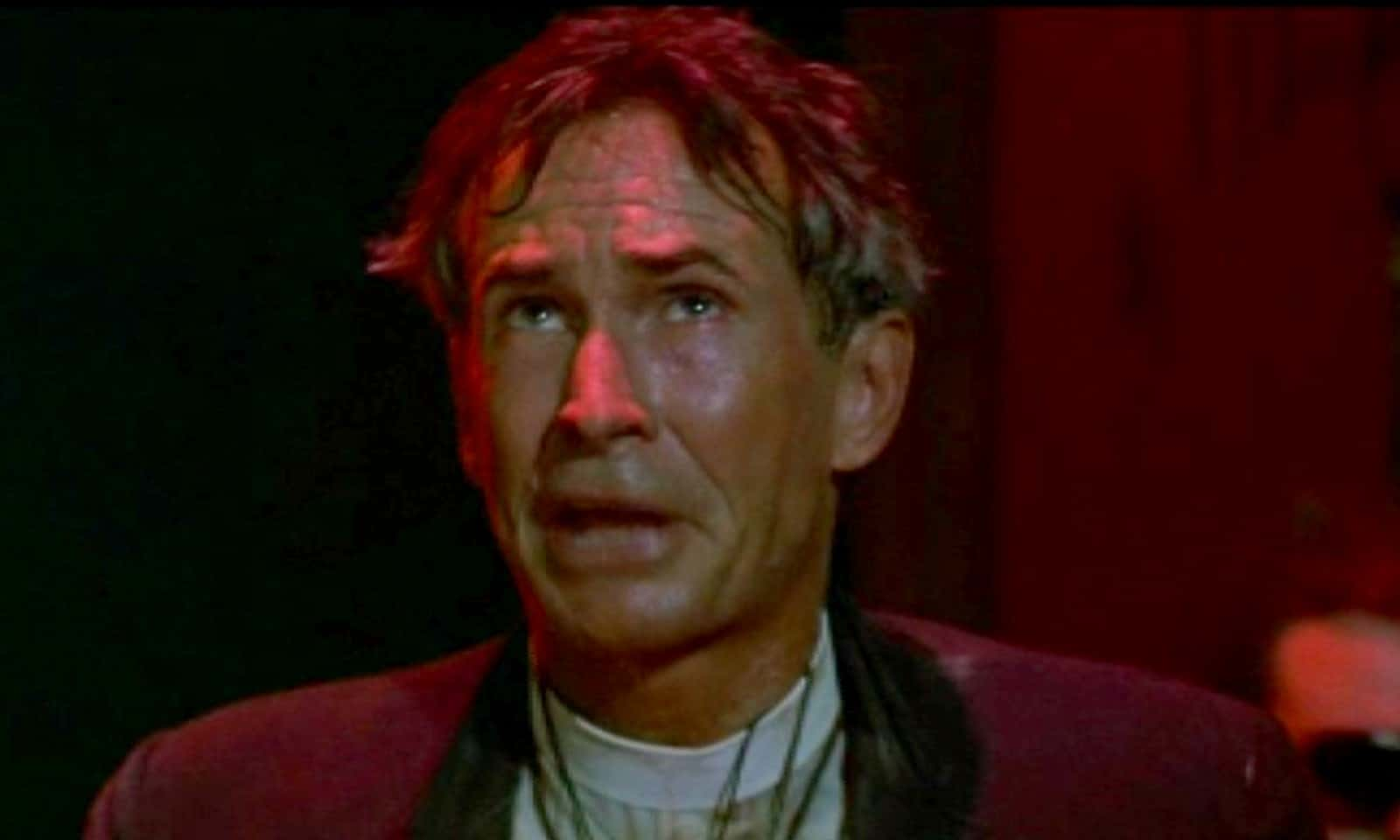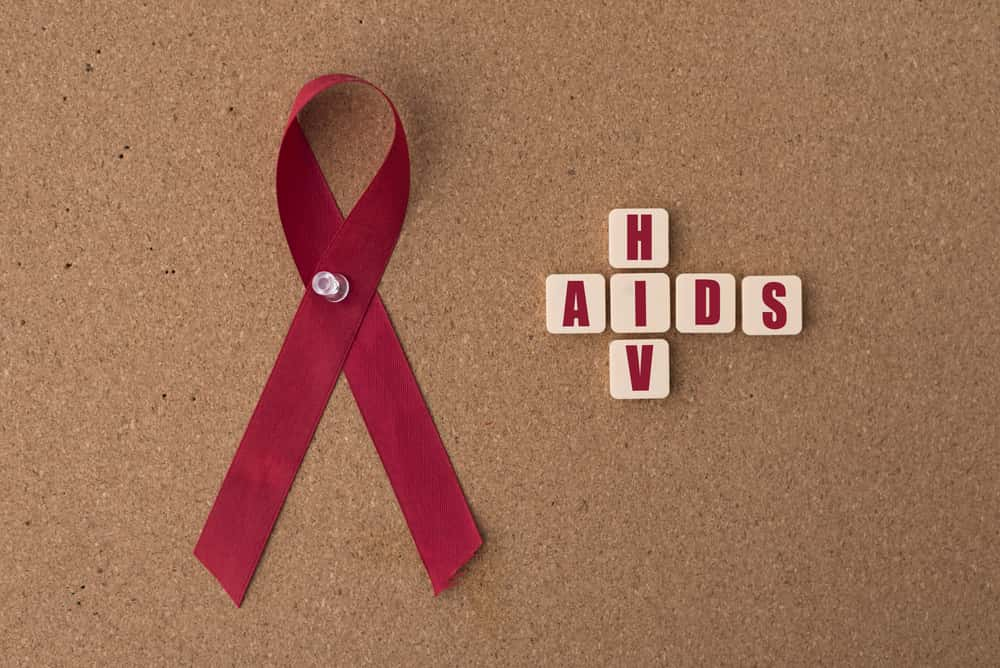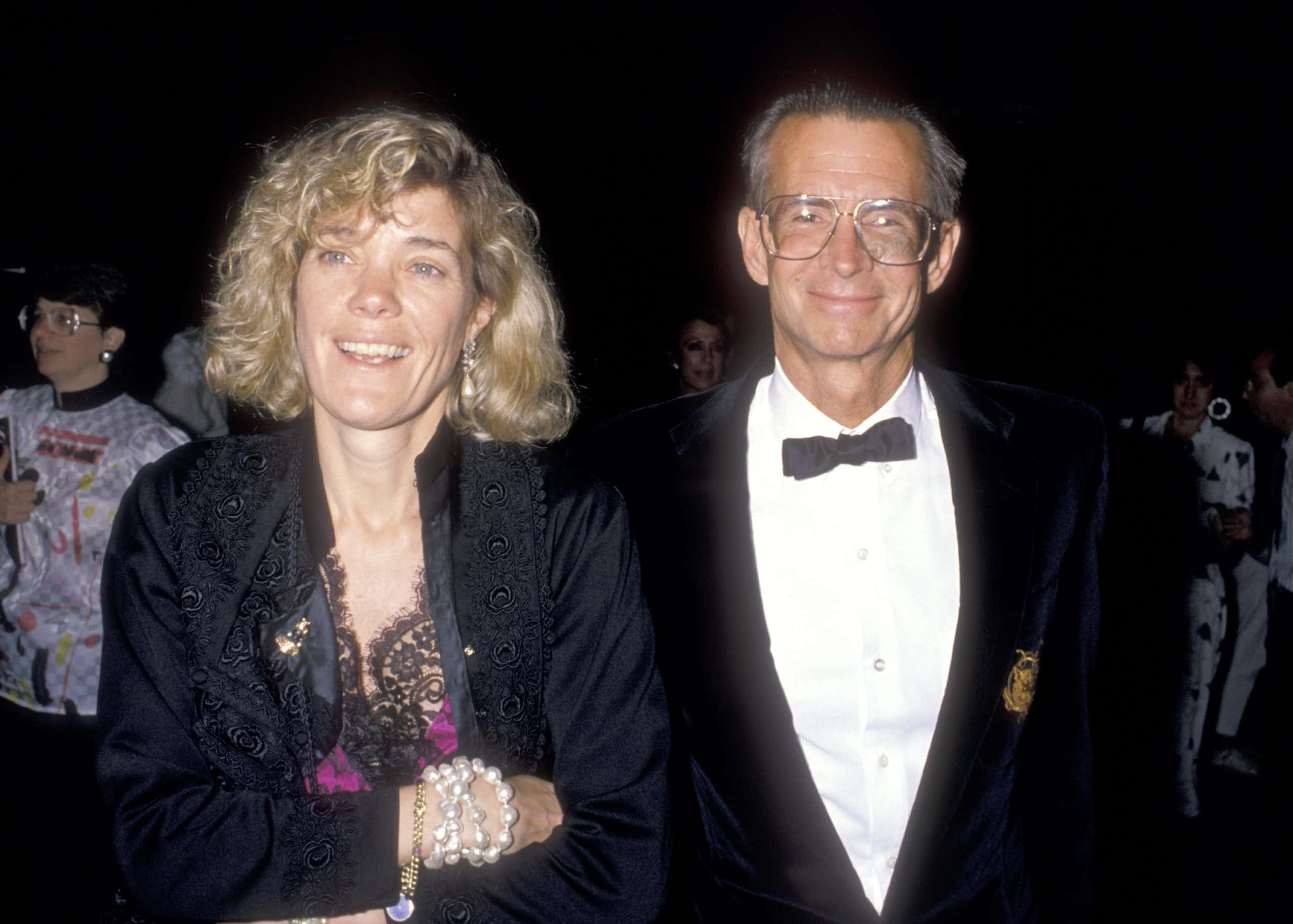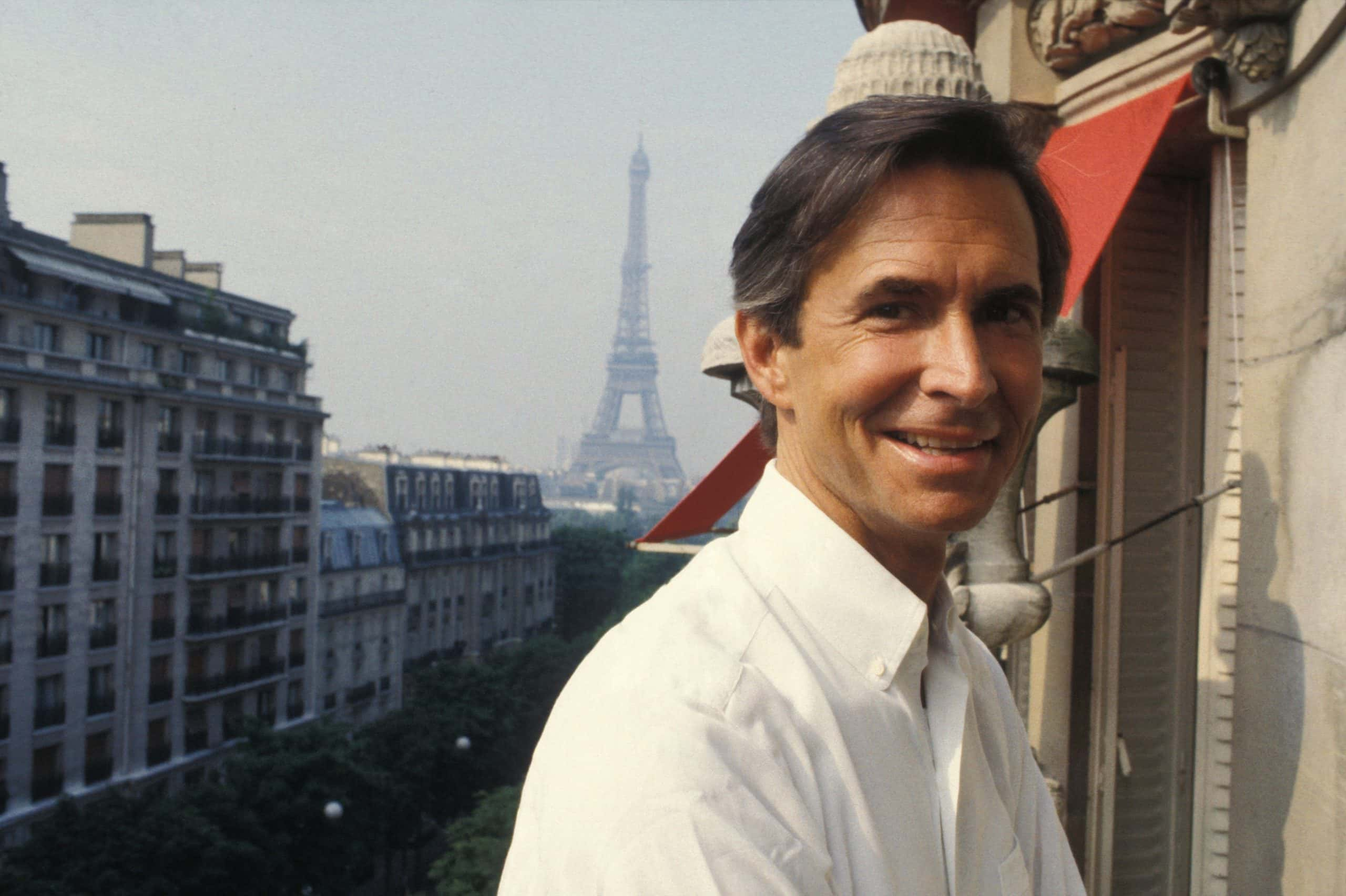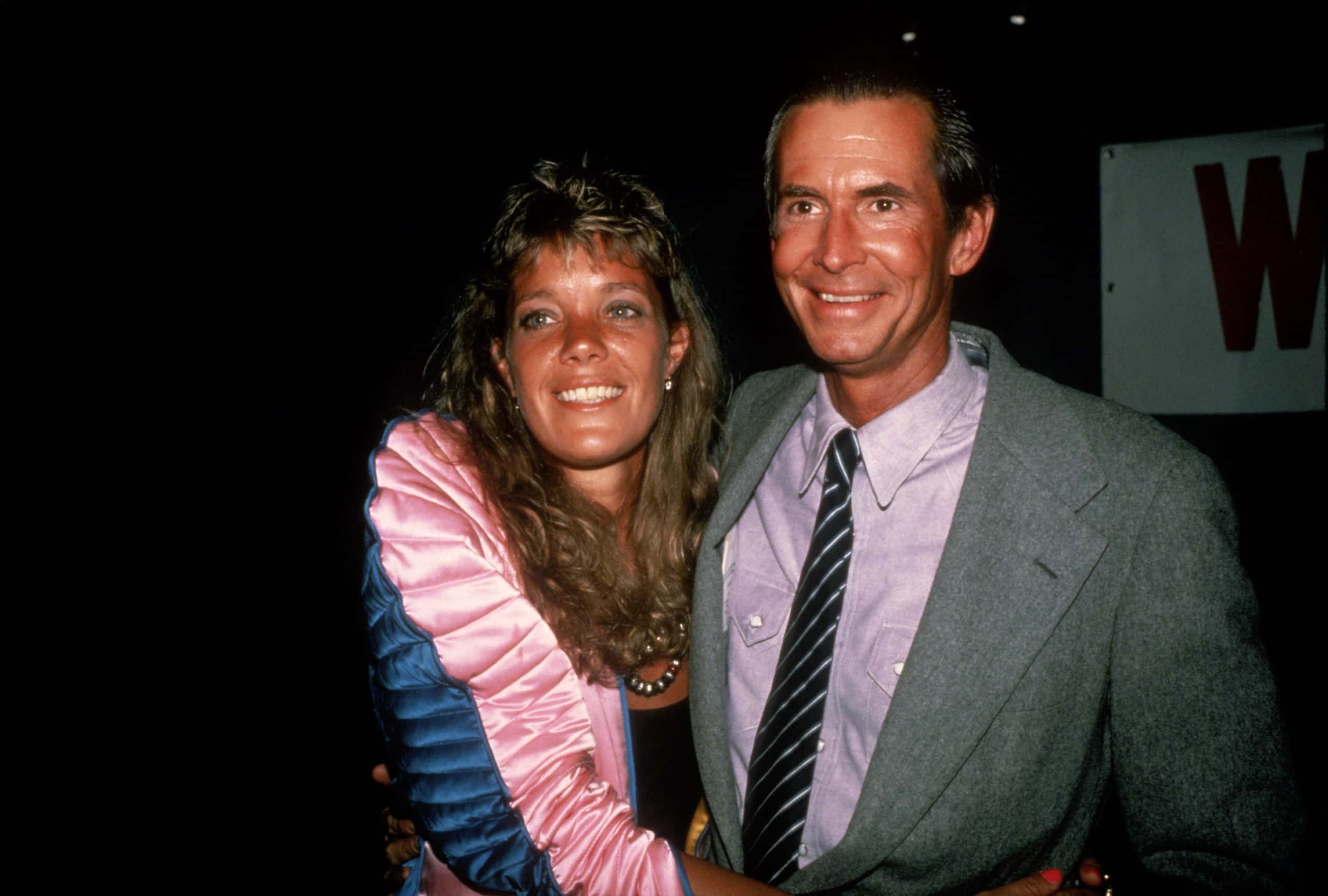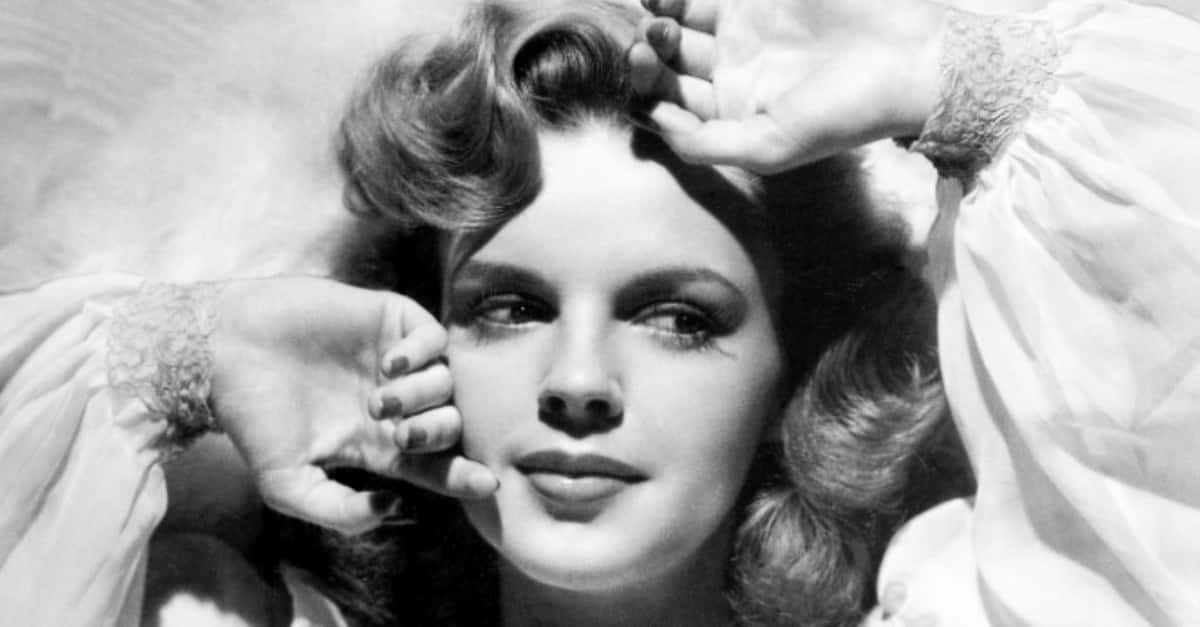Most renowned for his gruesome role in Psycho, Anthony Perkins lives on in most of our minds as the iconic Norman Bates. But this shy, handsome actor also possessed hidden talents, ambitious reach, and most shockingly—a controversial personal life. Perkins held his secrets close, but we’re here to appreciate the great dualities that defined his life.
1. He Had A Famous Father
Born in New York in 1932, Anthony Perkins made his appearance the same year his famous father, Osgood Perkins, starred in Scarface. As an only child, Perkins grew exceedingly close to his mother, Janet Rane. But this closeness led to his deep-seated feelings of resentment toward his absent father…
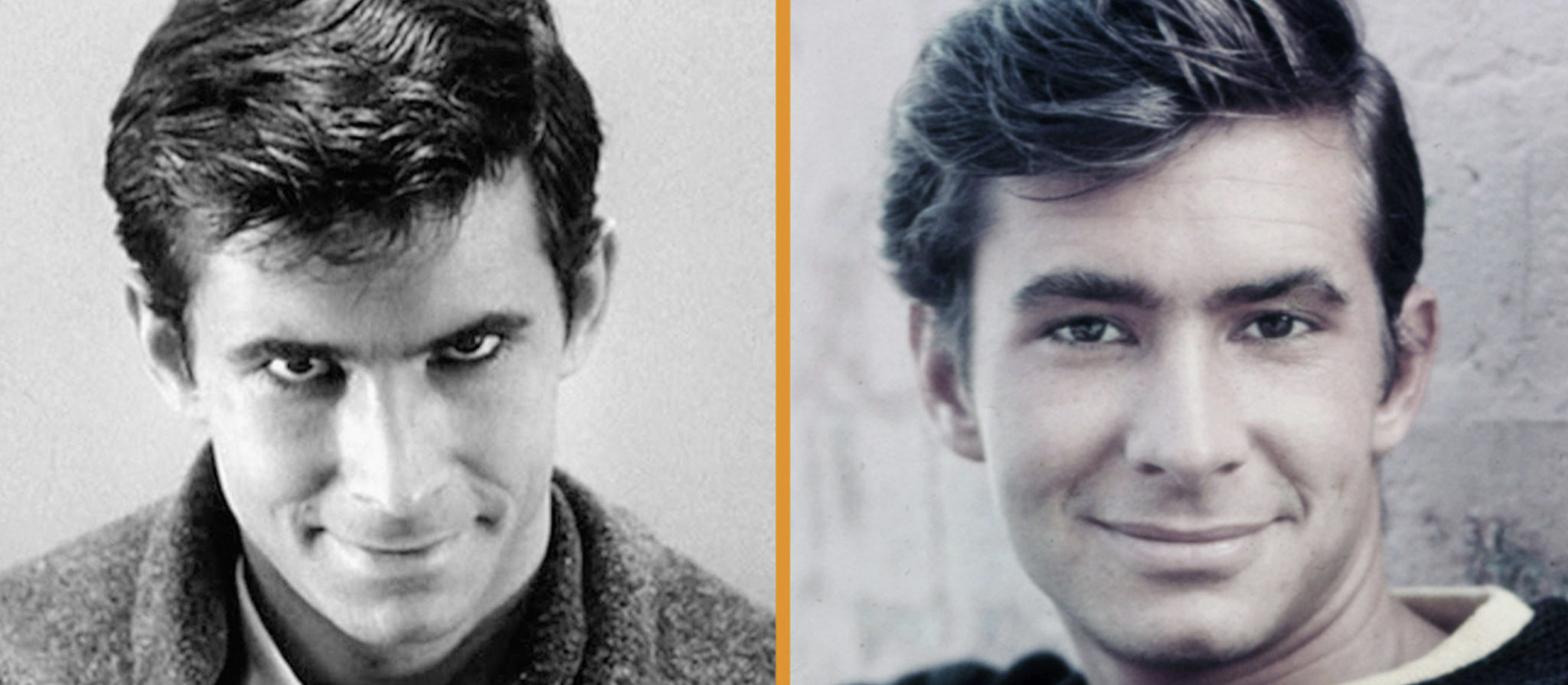
2. He Was Jealous
Whenever his father came home between jobs, young Perkins regarded him with jealousy: "I loved him but I also wanted him dead so I could have her all to myself". Swept up in Oedipal angst, he had no idea that his darkest wishes were about to come true…
3. His Wishes Came True
When he was five years old, Perkins’s father passed on suddenly from a heart attack. Racked with guilt, the young boy believed his violent wishes possessed the power to take his father’s life. Osgood Perkins became a mythical figure and every time his son saw him onscreen, he came alive. Meanwhile, his relationship with his mother grew even closer...maybe even too close for comfort.
4. He Was A Mama’s Boy
With even more love to give, Perkins' mother smothered him with an adoration that bordered on the inappropriate: "She was constantly touching and caressing me," he said. Soon, he no longer knew whether to desire or question his mother’s attention. Seeking an escape, Perkins turned to his father’s career for inspiration.
5. He Wanted To Escape
Having heard glorious tales about his father’s life as an actor, Perkins set his sights on a new goal: Acting. His father enjoyed great freedoms, doing what he wanted when he wanted, and Perkins eyed this calling as a refuge from his repressed home life…
6. He Was In Good Company
At Rollins College in Florida, Perkins honed his craft by starring in college productions such as The Importance of Being Earnest. In his freshman year, he shared stomping grounds with future stars such as Mr. Rogers and John Reardon. It was his last chapter of pure normalcy—the interim before colliding with fame. The bright lights were just around the corner...
7. He Landed A Breakout Role
It’s not easy to break into film, but Perkins managed to get a foothold in his early 20s, landing a supporting role in The Actress and playing alongside Jean Simmons and Spencer Tracy. Just like his father, he bounced between two worlds—theater and Hollywood.
8. He Was A Broadway Hit
Only a year after his Hollywood debut, Perkins made a splash on Broadway. He replaced John Kerr in the lead role of play Tea and Sympathy and blew the critics away. Waves of adoration pooled around this new star and in 1955, he won a Theater World Award. After conquering the stage, he returned to film and became a well-known figure on the circuit.
9. They Praised Him
In 1956, Friendly Persuasion—a war drama directed by William Wyler—launched Perkins’s acting career to the next level. Starring alongside Gary Cooper, his performance garnered him a Golden Globe award for New Star of the Year, as well as an Academy Award nomination. This influx of popularity proved that he could be the next big thing.
 Friendly Persuasion (1956), Allied Artists Pictures
Friendly Persuasion (1956), Allied Artists Pictures

History's most fascinating stories and darkest secrets, delivered to your inbox daily.
10. He Won All The Awards
The awards followed him back to Broadway, and the following year, he had a Tony Award nomination under his belt for Best Actor in Look Homeward, Angel. Ambitious and heartened by his early success, Perkins could do no wrong. It wasn’t long before the music world saw potential in Perkins' talents. In addition to acting, he had even more tricks up his sleeve...
11. They Expected A Leading Man
By 1958, everyone expected great things from Anthony Perkins. Newsweek magazine said he was the heir to such frontrunners as Clark Gable and Gary Cooper—they had him pegged as the next leading man. Even the Hollywood Reporter called him the fastest rising star in Hollywood. For young Perkins, the future was a picture of glowing optimism.
The world was his oyster, but the higher you rise, the further you have to fall.
12. They Wanted A Teen Idol
Perkins' first musical singles reflect Paramount’s attempt to mold him into the next teen idol—an album of fun doo-wops that boasted fluffy titles such as "The Prettiest Girl In School" and "When School Starts Again". He even reached #24 on the pop charts for his light-hearted hit "Moonlight Swim". But Perkins had serious intentions for his music career and his following albums demonstrated an impressive range.
13. He Was An Underrated Crooner
From popular music to jazz he traversed multiple avenues, but his calming vocals truly soared in crooning covers such as "The More I See You". Perkins also spoke French fluently and recorded an entire French album! But it wasn't all sunshine and roses. With competition looming at every corner, he felt incredibly insecure about the quality of his voice.
14. He Hated His Voice
After hearing his soft jazz renditions, Perkins felt dejected: "My voice is terrible". With greats like Frank Sinatra and Dean Martin as giant competitors, Perkins’s understated, yet undeniably sweet vocals fell beneath the radar. Later in his life, he called his discography "a second-rate art"—a severe self-criticism that spoke to Perkins’s desire to be a better artist in every way.
And then in 1960, he played a role so well that it changed his life forever...
15. He Scored A Life-Changing Role
The Alfred Hitchcock horror Psycho defined Anthony Perkins’s career. His role as Norman Bates—motel caretaker and antagonist—cemented Perkins as a household name. Reminding Hitchcock of a young James Stewart, he felt Perkins was perfect for the boyish and strange role of Norman. Wielding a sinister dual personality and penchant for murder, his character entranced and horrified audiences everywhere.
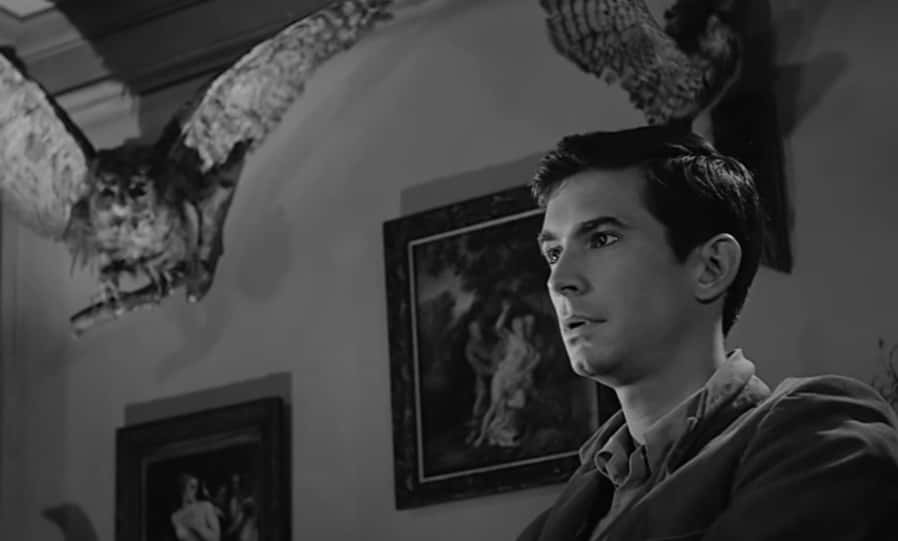 Psycho (1960), Paramount Pictures
Psycho (1960), Paramount Pictures
16. Hitchcock Appreciated Him
Perkins’s experience on the set of Psycho was overwhelmingly positive. Fostering a camaraderie with Hitchcock, Perkins felt that his director really appreciated his input. On one occasion, Hitchcock gave Perkins a couple hundred dollars and told him to pick out Norman’s outfit—a gesture that made the actor feel greatly involved in the creation of his character.
17. He Wasn’t In The Iconic Scene
Psycho's most iconic and memorable moment is the shower scene where Norman Bates murders Janet Leigh’s character, Marion. For the rest of his life, audiences associated this horrific scene with Perkins. But there's something most people don't know about that legendary scene. The irony of it all was that it wasn’t actually Perkins in the scene—it was his double.
That means that when Perkins viewed the final cut of the film, he experienced the scene with fresh eyes and was utterly terrified.
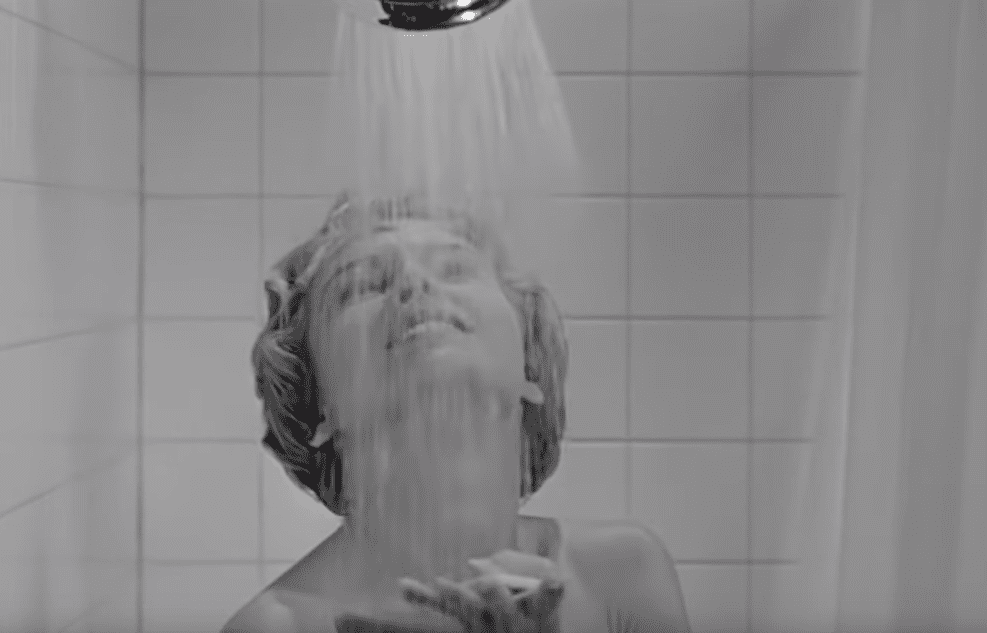 Psycho (1960), Paramount Pictures
Psycho (1960), Paramount Pictures
18. He Starred In A Classic Film
Psycho was an overwhelming success, raking in fifty times its production budget. Perkins’s performance significantly lent to the film’s triumph at the box office, as well as its many Academy Award nominations. It wasn't a flash in the pan, either: Today, it’s regarded as one of the best films of all time. But despite his success on the big screen, Perkins wasn’t quite as prolific in the romance arena…
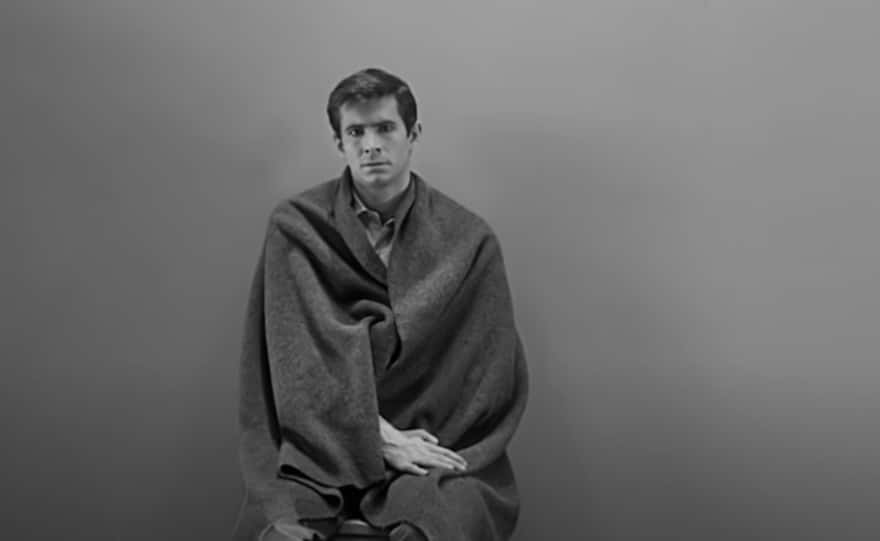 Psycho (1960), Paramount Pictures
Psycho (1960), Paramount Pictures
19. He Was Irresistible
Perkins stayed single until well into his 30s. He fended off romantic advances left, right, and center. Leading ladies such as Brigitte Bardot, Sophia Loren, and Jane Fonda showed interest in the wiry, handsome actor to no avail. He rejected them all. On one occasion, he even admitted to preferring death to voluntary intimacy with a woman...
20. He Feared Intimacy
For most people, a night spent with a beautiful celebrity might be a common fantasy...but not for Anthony Perkins. When Brigitte Bardot invited Perkins to her penthouse, his fear clouded every thought: "Sooner than get close to her, I would have crashed through the window and fallen to the pavement 10 stories below". And what was his reason? Well, that was his best-kept secret…
21. He Harbored A Secret
Being gay in a prejudiced industry—a prejudiced world—kept Perkins from openly admitting his attraction to men. His movie companies set him up on dates with pretty actresses—publicity stunts constructed to upkeep his picture-perfect facade, and the secret stayed hidden. Meanwhile, Perkins did everything in his power to fit the mold. He even did something that challenged his natural desires…
22. He Tried To Change His Desires
Perkins loved his work and knew that coming out in the 1950s was impossible, especially as a public figure. It would destroy his career. Instead, he tried psychotherapy in an attempt to eradicate his desires, keeping his trysts completely hidden. The 1950s was a dangerous era for Perkins to be his authentic self, but it didn’t stop him from falling in love behind closed doors...
23. He Fell For The Boy Next Door
In 1956, four years before Psycho, Perkins set his eyes on teenage heartthrob Tab Hunter—blond, blue-eyed, and stunning in every way. They met innocently at the pool of Chateau Marmont, and their romance blossomed undercover. In order to upkeep their vigilant discretion, they often went to creative lengths for the sake of their affair…
24. They Were More Than Friends
Together, the two lovers went on double dates with other Hollywood starlets, providing delicious fodder for media magazines. When dinner was over, Perkins and Hunter headed home together instead of with their respective dates. To their friends, they were simply "college buddies". To their production companies, it was another story...
25. The Boss Didn’t Approve
Paramount wasn’t in favor of Hunter’s love life ruining his glossy image. They told him to stop seeing Perkins and voiced their disapproval to Hunter directly. This didn’t stop the two lovebirds from convening behind the boss’s back. They even visited a beach house together—finding time amidst their busy schedules for one another. But as they say, all good things must come to an end.
26. They Were Competitive
The three-year relationship ended on a sour note. Hunter starred in the TV production Fear Strikes Out and Perkins’s ambition drove him to take the same role for its movie adaptation. The competition between the two actors—the all-American boy and his brooding counterpart—was too much to overcome.
 Fear Strikes Out (1957), Paramount Pictures
Fear Strikes Out (1957), Paramount Pictures
27. He Was Shy Around Women
Although Hunter was one of Perkins' first and well-lit affairs, biographers connect him to other famous names such as Rock Hudson, Rudolf Nureyev, and Stephen Sondheim. His comfortability with men contrasted his shyness with women, but his dedication to maintaining a proper public persona trumped all, so he decided to give women another chance...
28. He Saw Her In A Magazine
During one of his sessions, Perkins’s therapist asked him what kind of woman attracted him. Flipping through an issue of Vogue, he came across a spread of Berry Berenson—sister of model and actress Marisa Berenson. Unbeknownst to him, Berenson also harbored a soft spot for Perkins...
29. He Dated One Of His Fans
When she was only 12 years old, Berenson fell in love with Perkins’s onscreen persona in Phaedra. As luck would have it, she met her celebrity crush face-to-face ten years later. They connected at a Manhattan party and delightfully hit it off. It was a fan's dream come true. But some speculated that Perkins’s affection for Berenson stemmed from an attraction to another man...
30. She Looked Like His Ex
When Perkins married Berenson in 1973, his ex-boyfriend, photographer Chris Markos, noted a strange semblance between himself and the actor’s new wife, "The funny thing is that Berry and I looked similar—we both had short fair hair and similar features. This was noticed by the Andy Warhol crowd, who joked that he substituted Berry for me". But if Berenson also noticed a similarity, nobody was the wiser...
31. He Was Her Blind Spot
When it comes to Berenson’s feelings about her husband’s relationships with other men, nobody is quite sure where she stands. Her circle of friends believed she either had no idea or that she simply didn’t care to know about it. There is, however, no doubt that she committed to their marriage, and whatever went on behind closed doors, the couple always put their best foot forward.
32. He Was A Family Man
Can a marriage between a gay man and a straight woman be successful? No matter the whispers of Perkins’ attempt to trick Hollywood by marrying, he showed complete devotion to his wife and two boys—Oz and Elvis. It was not a traditional marriage, but as writer Dominick Dunne noted, "Whatever they had, it was wonderful. I mean, it was a real family".
33. They Defied Expectation
Marriage tempered the fear Perkins felt as a younger man—his wife balanced him. He admitted that life with Berenson was "not so grasping and ambitious. Not so paranoid. Not so fearful". And although 16 years her senior, and with the media predicting a divorce down the road, they found a balance that lasted them until the end of his life.
34. He Would Always Be Norman
When it came to his career, Perkins never quite escaped his role as Norman Bates. He went on to star in three Psycho sequels that failed to live up to the genius of Hitchcock’s original film, and for the third installment, he even tried his hand at directing. Boxed in by the industry’s image of him, Perkins fostered mixed feelings about the character that became his legacy.
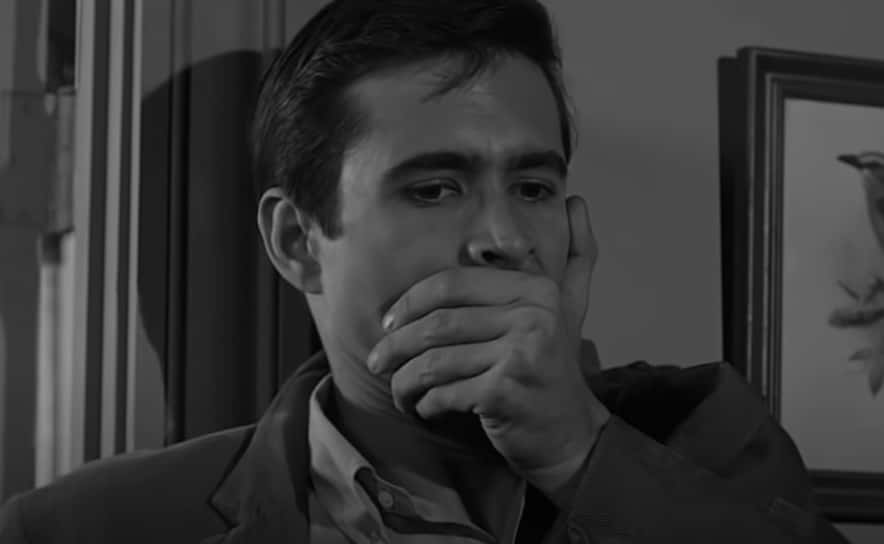 Psycho (1960), Paramount Pictures
Psycho (1960), Paramount Pictures
35. He Waited In Vain
According to his wife, Perkins went two years without working but bore the disappointment with dignity. He waited eagerly for his agents to call, but he simply wasn’t sought after. Although silently enraged by the fickleness of his industry, he never complained. He kept himself busy. He learned to play the piano. Perkins waited patiently for the jobs to come.
Something completely unexpected ended up coming instead.
36. He Wanted Freedom
Every public figure is more than the public’s perception of them. When Anthony Perkins passed on in 1992, the inscription on his urn spoke greatly to everything he strove to be: "Don’t Fence Me In". He was more than his illness and the famous roles he inhabited, and due to his deeply private nature, there is still so much that we’ll never know.
37. His Widow Had A Tragic End
Less than a decade later, Perkins’s widow—Berry Berenson—tragically perished on American Airlines Flight 11 on September 11, 2001. She was aboard the hijacked plane steered into the North Tower of the World Trade Center. Both Perkins and Berenson are survived by their sons.
38. His Sons Follow In His Footsteps
Like father, like son. Just as Perkins followed in his father’s footsteps, so do his own sons. Osgood—also known as Oz—pursued acting. His very first role was young Norman Bates in Psycho III, and for a moment in time, he stood in his father’s shoes. Meanwhile, younger son Elvis inherited more of Perkins’ musical side and is now a musician.
39. There Was Nothing Left To Take
If anything is true, it’s that Perkins had an unquenchable thirst for life. He was consistently looking forward—learning and improving—trying new things. In 1983, he captured this sentiment beautifully: "It’s satisfying to have grown from where I was to where I am. But there is so much growing still to be done. As long as I live, I’ll be cleaning the past out of my mind, getting rid of those old cassettes I play over and over—my memories, my beliefs. I want to keep up with my life. Live it so completely that when death comes like a thief in the night, there’ll be nothing left for him to steal".
40. His Friends Won’t Tattle
Nobody close to Perkins is willing to divulge anything regarding his fidelity or whether he had affairs with men throughout his marriage. His friends were resolutely loyal to his privacy. However, when he was 58, a strange series of events occurred that led Perkins to a devastating discovery—one with the power to topple not only his marriage, but the foundation of his entire life...
41. The Tabloids Found Out First
When The Enquirer—a tabloid paper—published a story claiming that Perkins had HIV, nobody took it too seriously...except maybe for Perkins himself. Completely thrown by the media’s claim, he went for tests to find out the truth. When the results proved positive, he realized that The Enquirer must have gained access to this confidential information before he did…
42. He Contracted HIV...
When a salacious story is on the table, morals have a funny way of flying out the window. Here’s what happened: When Perkins visited the hospital for treatment regarding a facial palsy, someone with access to his blood samples tested it for HIV and leaked the positive results to the paper. Already a seasoned pro in the secrets domain, Perkins was ready to hide his newest, most ruinous secret of all.
43. ...But His Wife Didn’t
As a devoted wife and mother, Berry Berenson was no doubt heartbroken by the news of her husband’s diagnosis. But she was also terrified for herself and her children. Over the next two years, she went for testing multiple times and, thankfully, received negative results every time. With sad confusion and bafflement, she said, "I don’t understand any of this. I don’t understand this disease at all".
44. He Suffered In Silence
As we know, anything that could hurt Perkins’s career remained concealed beneath the surface. This applied to his many boyfriends—and now—his debilitating diagnosis. He chose to suffer through AIDs with only his wife and family as close confidantes. Even visits to the hospital were incognito…
45. He Used An Alias
Perkins visited the hospital three times during his illness and every time, he and his wife used aliases. The pretending was especially difficult for Berenson—watching her husband slip into another role for the sake of saving face: "You think that this man has spent his entire life giving people so much pleasure in show business, and this is his reward. He can't even be himself at the end".
46. He Quoted A Famous Film
During his final days, Perkins illuminated the reason for his silence. He spoke directly to his sons about his decision to keep his illness a secret: "...because to misquote Casablanca, I'm not much at being noble, but it doesn't take too much to see that the problems of an old actor don't amount to a hill of beans in this crazy old world". And in the end, it was his experience with AIDS that completely changed his perspective on life…
47. AIDS Taught Him The Greatest Lesson Of All
One of life’s great ironies is that illness and loss often unleash a greater appreciation for living. As someone who always prioritized his career, Perkins’ run-in with a terminal illness taught him one of the greatest lessons of all. In his own words, he learned "more about love, selflessness and human understanding from the people I have met in this great adventure in the world of AIDS than I ever did in the cutthroat, competitive world in which I spent my life".
48. He Fed The Needy
Perkins did his best to give back to the community that taught him so much. During the last couple years of his life, Perkins became directly involved with an organization that helped feed homebound AIDS patients—Project Angel Food. He and his wife delivered food baskets and Berenson joined the organization’s board mere days before his death.
49. His Wife Denied It
There’s a lot of speculation when it comes to Perkins’s AIDS diagnosis. Most believe that it was a result of continued relations with other men, but his wife never entertained the idea. Even after his death, she maintained that the source of his illness remained a mystery: "No. We don’t really know. No. It’s not worth it".
50. His Ex Propositioned Him
In 1985, when Perkins' career was at an all-time low, a familiar face re-entered the picture. His old flame—the golden Tab Hunter—appeared out of the blue with an important question for Perkins. He wanted him to star in the comedy Lust In The Dust, his latest production. He even showed up at Perkins’ front door and asked him in person, but Perkins turned him down.
Maybe old feelings were just too much, but either way, this was the last time the old lovers ever laid eyes on one another.
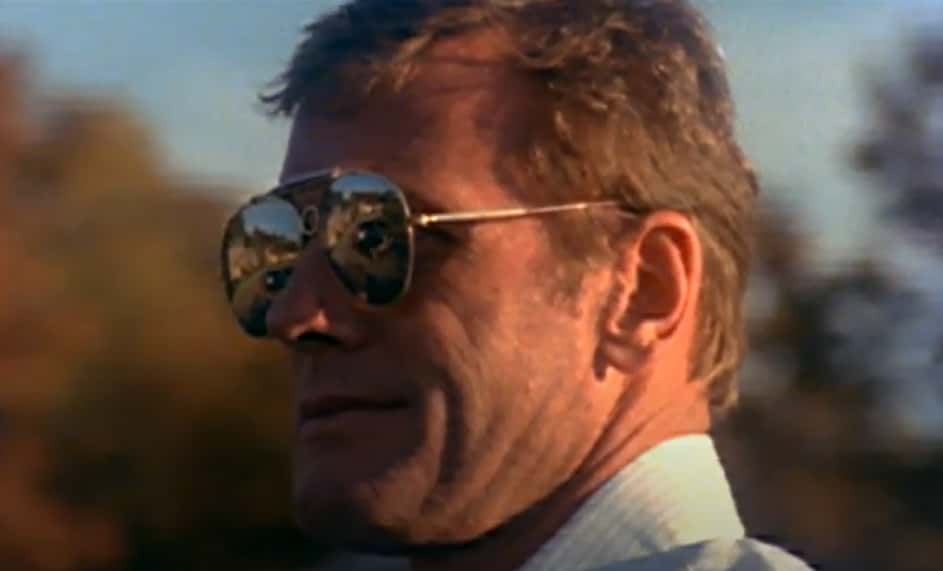 Polyester (1981), New Line Cinema
Polyester (1981), New Line Cinema


